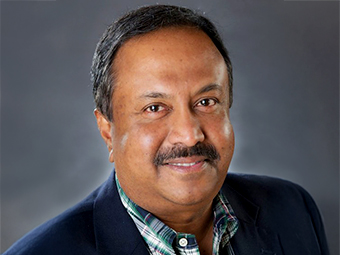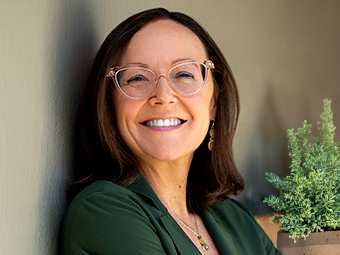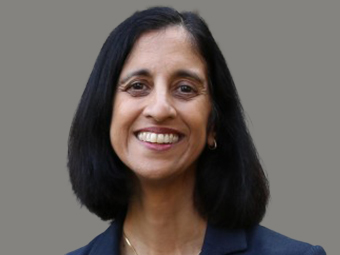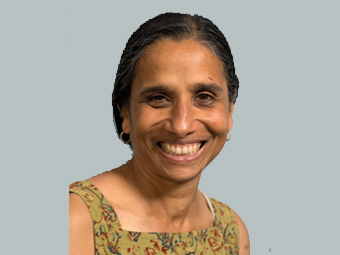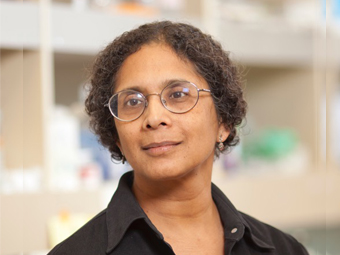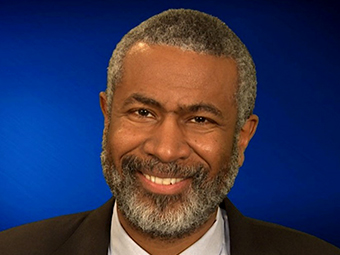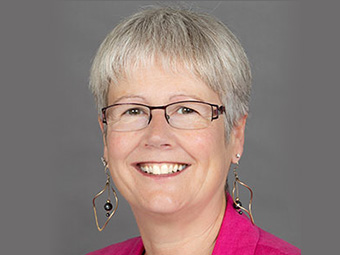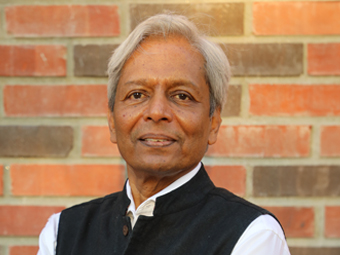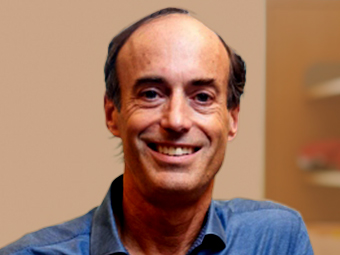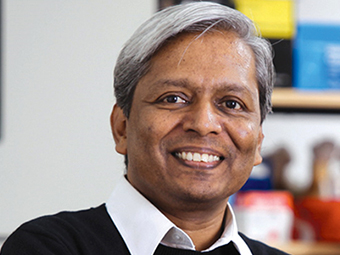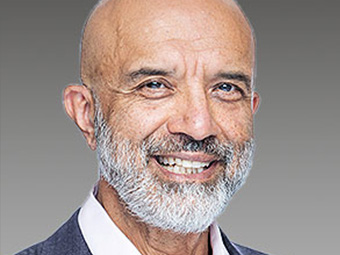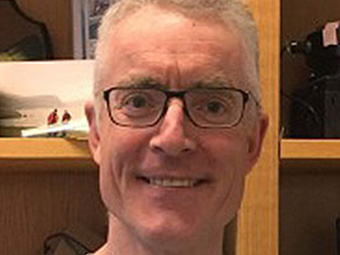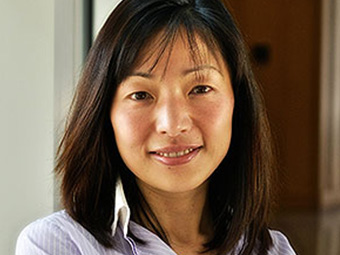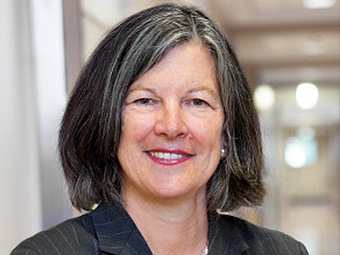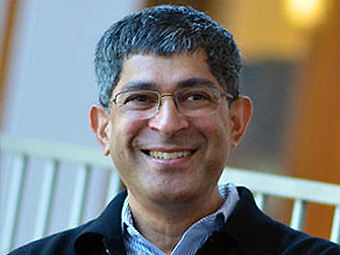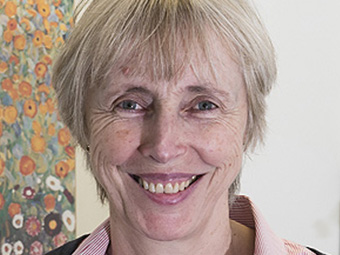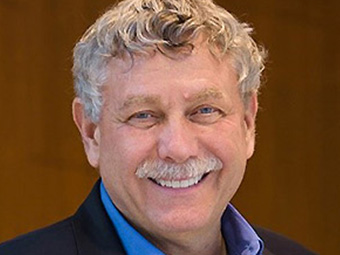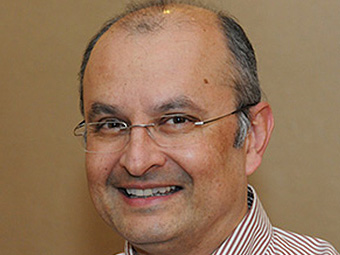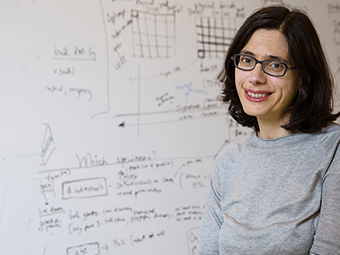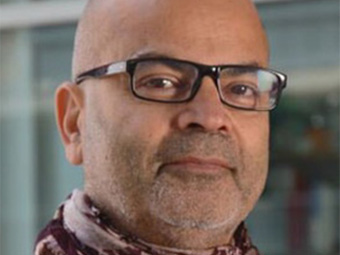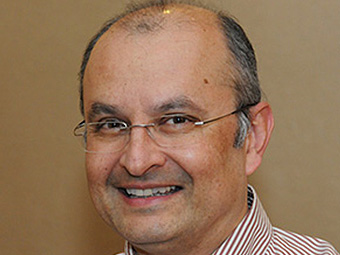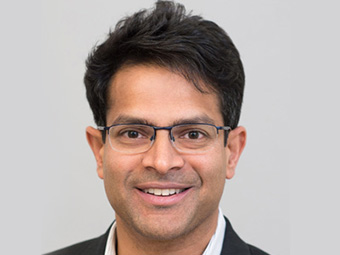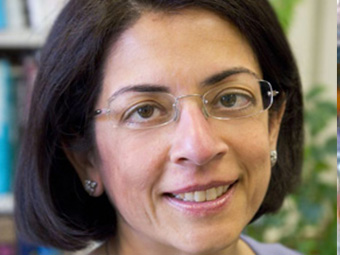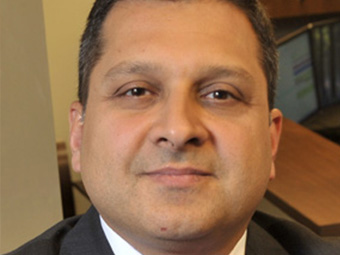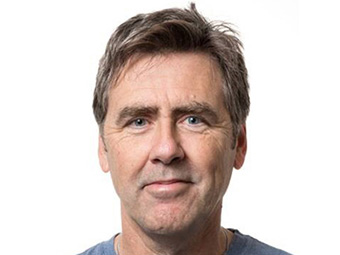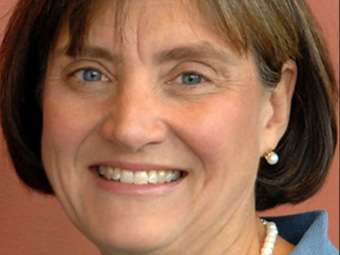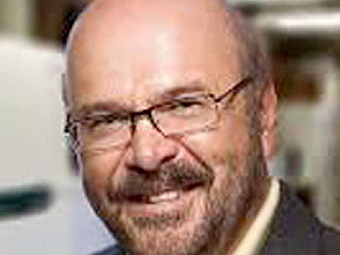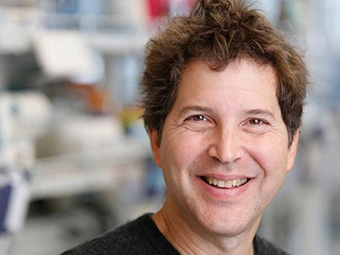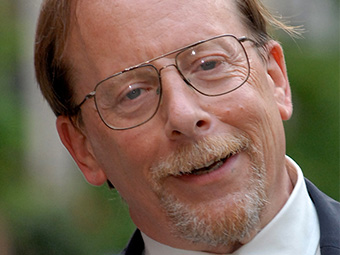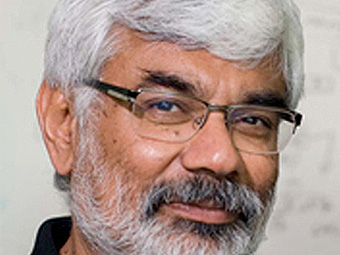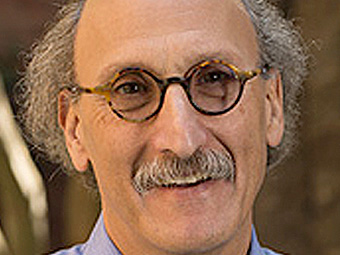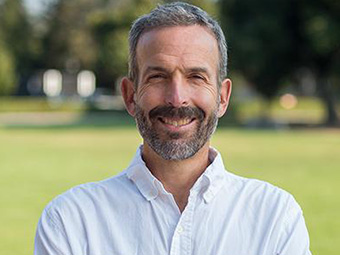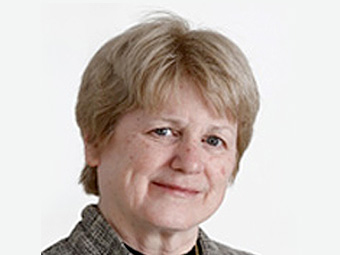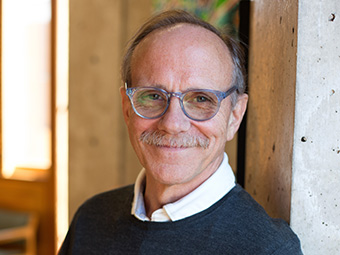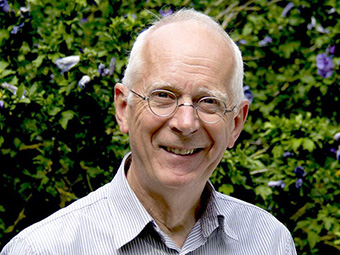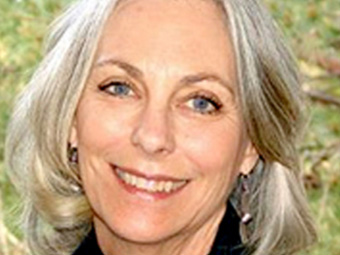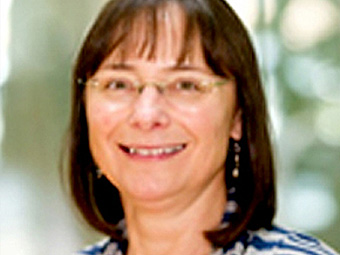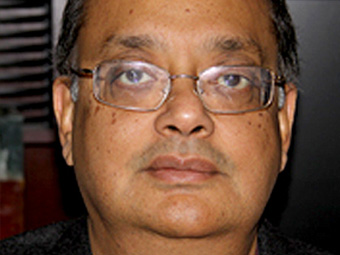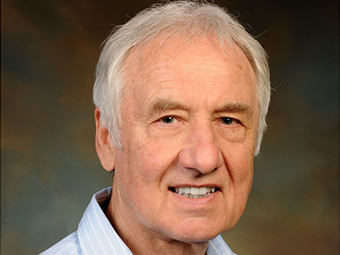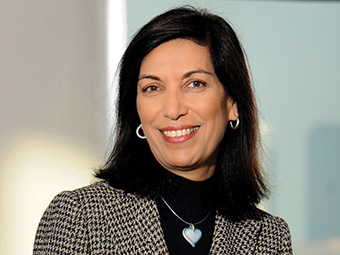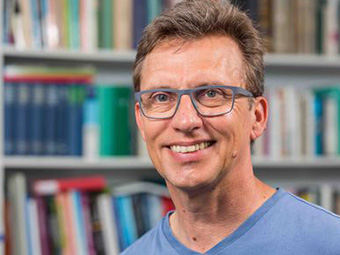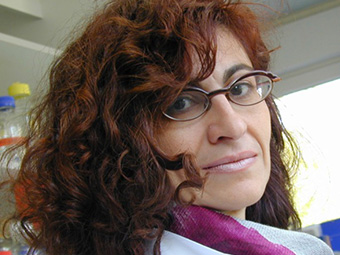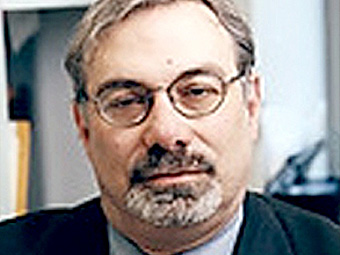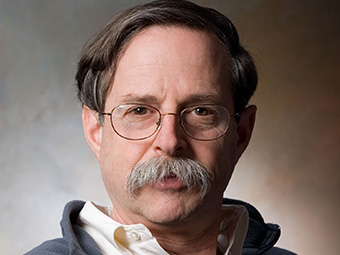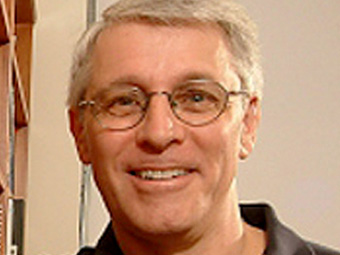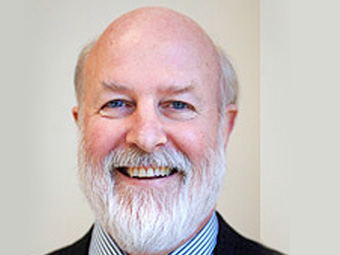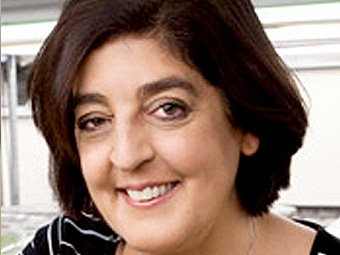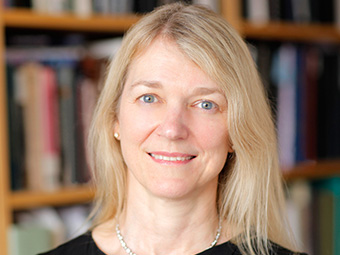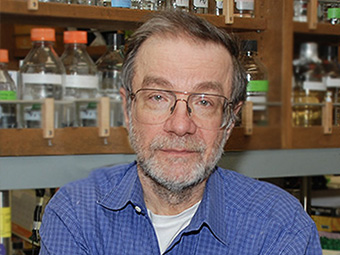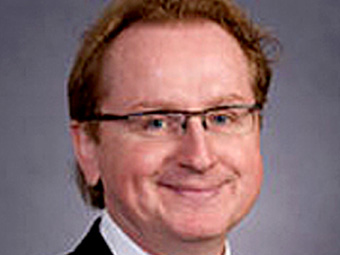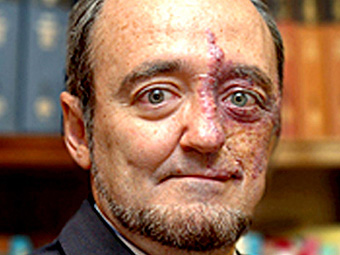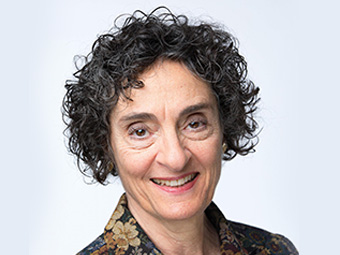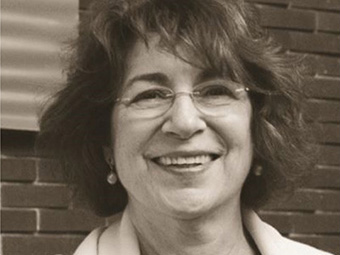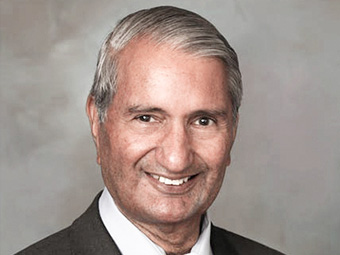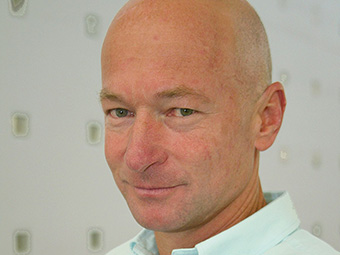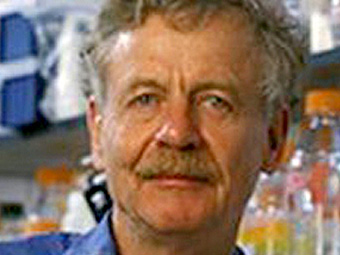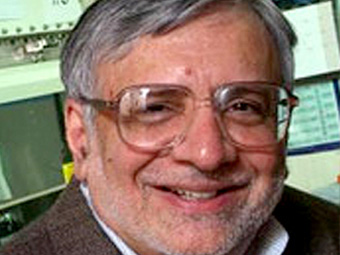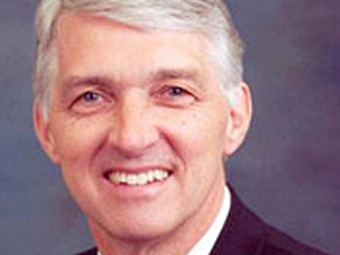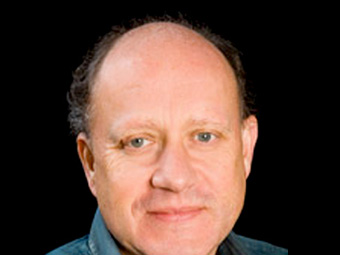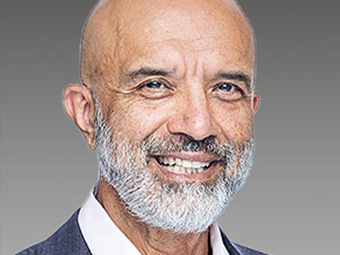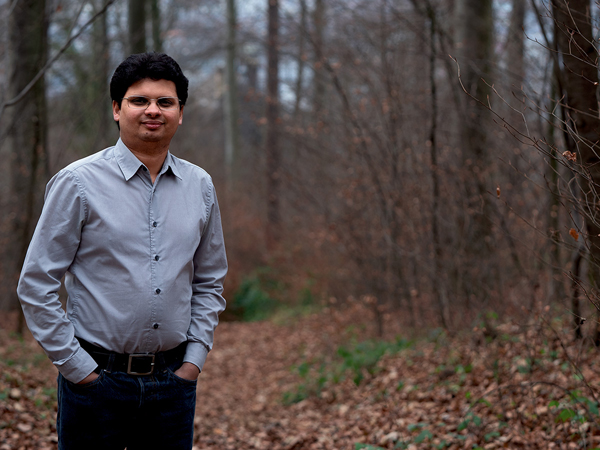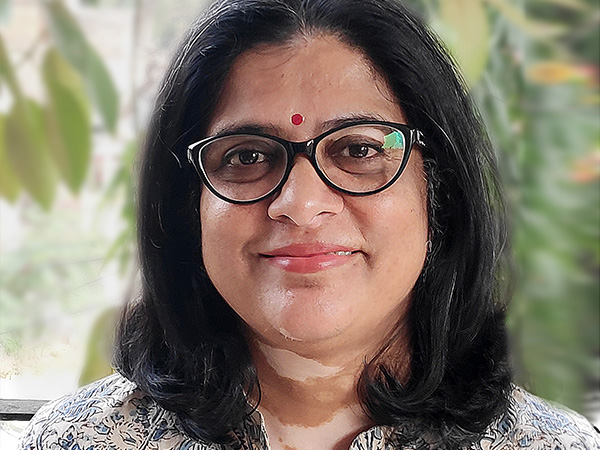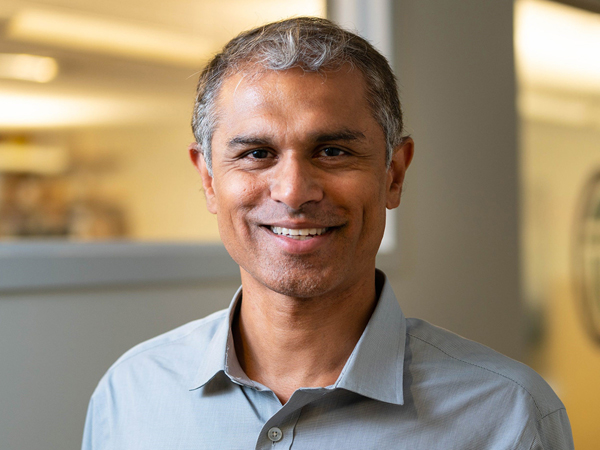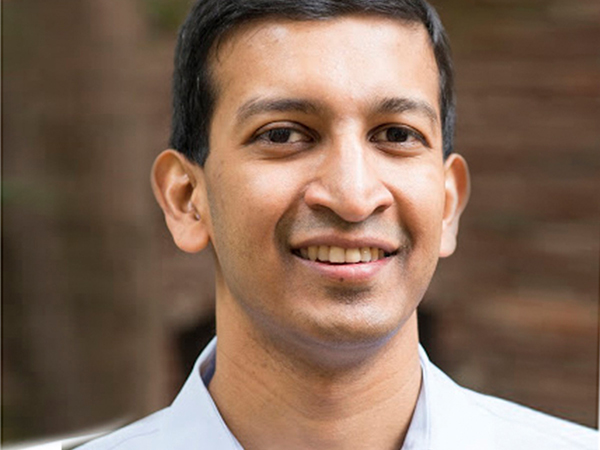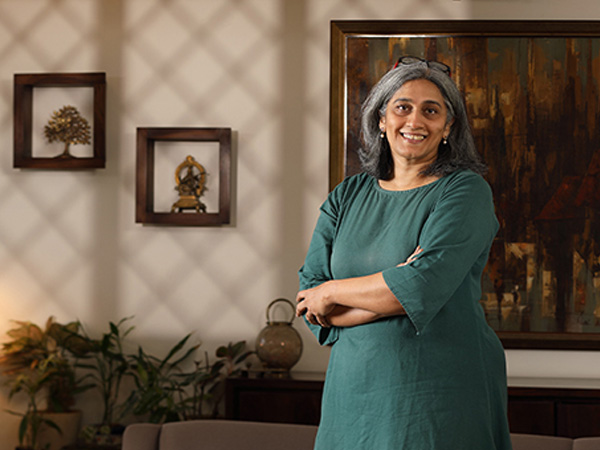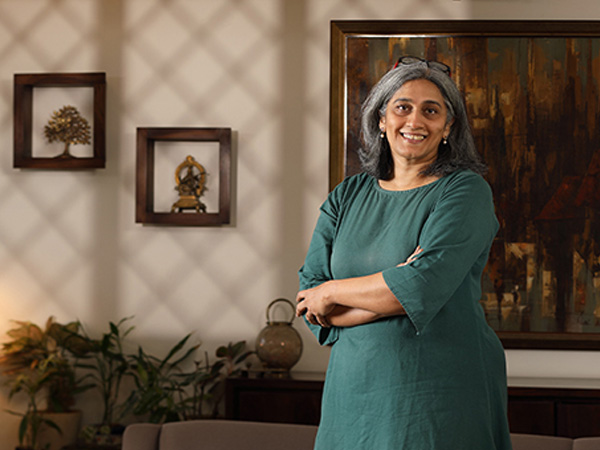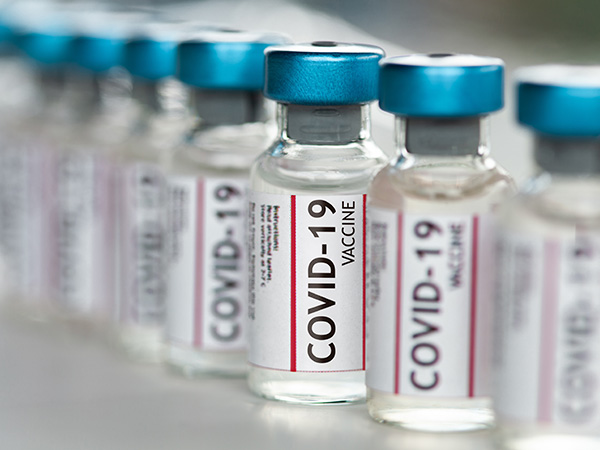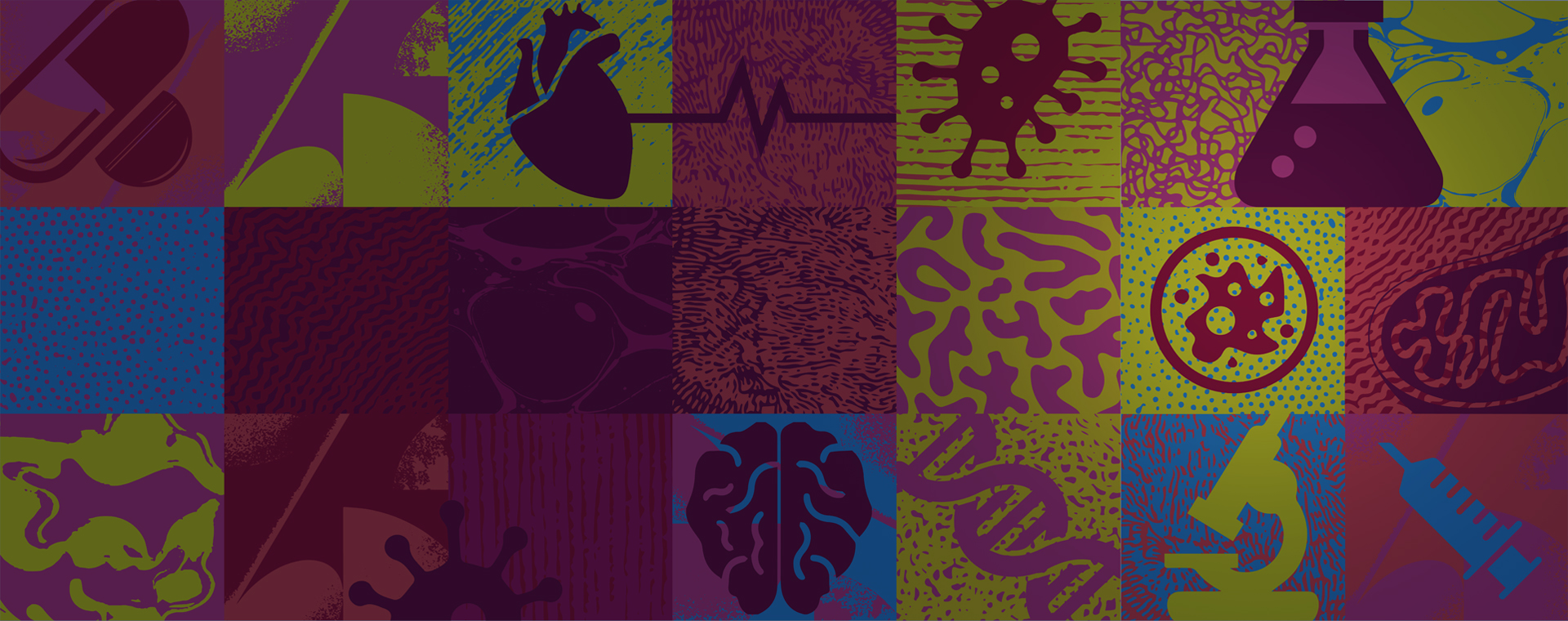
Life Sciences
Beginning with Aristotle's first scientific study of animals to decoding the human genome, the life sciences comprise the study of life in all its forms. The Infosys Prize has awarded work in genetics, neurobiology, medicine, cellular biology, biotechnology and other work on the frontiers of science.
Laureates
Life Sciences 2025
Anjana Badrinarayanan
Associate Professor, Cellular Organization and Signaling, National Centre for Biological Sciences, Bangalore
Read More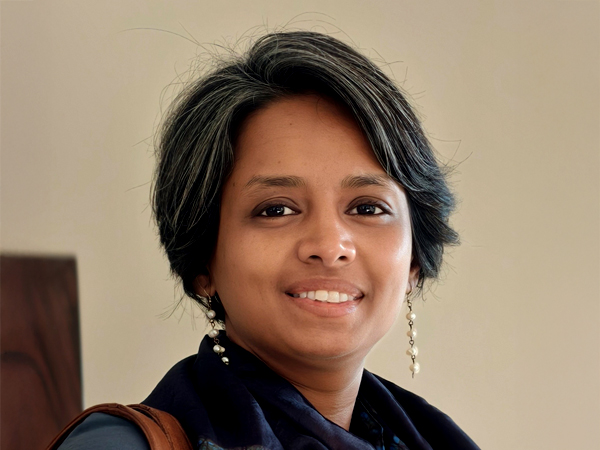
Life Sciences 2024
Siddhesh Kamat
Associate Professor, Department of Biology, Indian Institute of Science Education and Research, Pune
Read More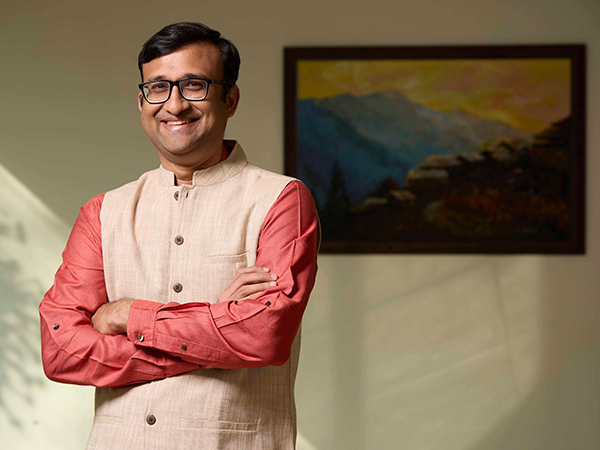
Life Sciences 2023
Arun Kumar Shukla
Professor and Sonu Agrawal Memorial Chair, Biological Sciences and Bioengineering, Indian Institute of Technology, Kanpur
Read More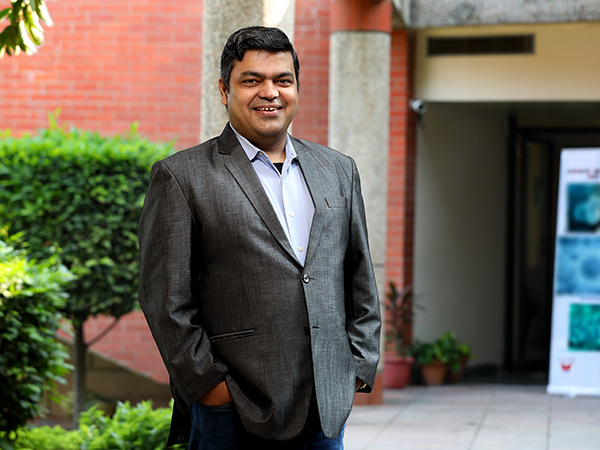
Life Sciences 2022
Vidita Vaidya
Professor and Chairperson, Department of Biological Sciences, Tata Institute of Fundamental Research, Mumbai
Read More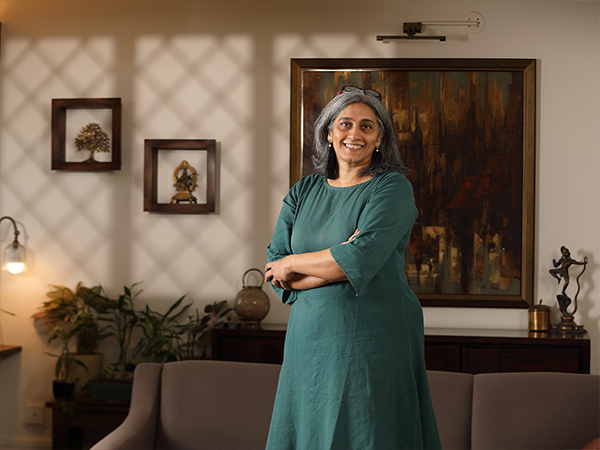
Life Sciences 2021
Mahesh Sankaran
Professor, National Center for Biological Sciences, Bengaluru, India
Read More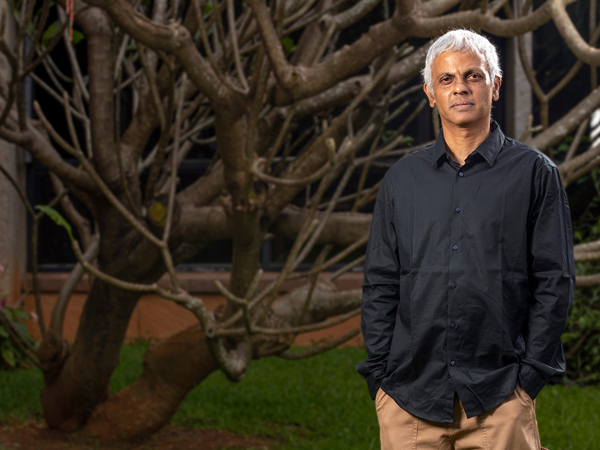
Life Sciences 2020
Rajan Sankaranarayanan
Group Leader, Structural Biology Laboratory, Centre for Cellular and Molecular Biology, Hyderabad, India
Read More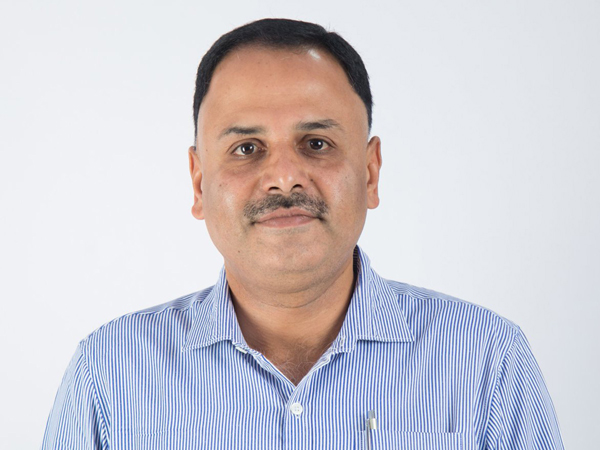
Life Sciences 2019
Manjula Reddy
Chief Scientist, Center for Cellular and Molecular Biology, Hyderabad
Read More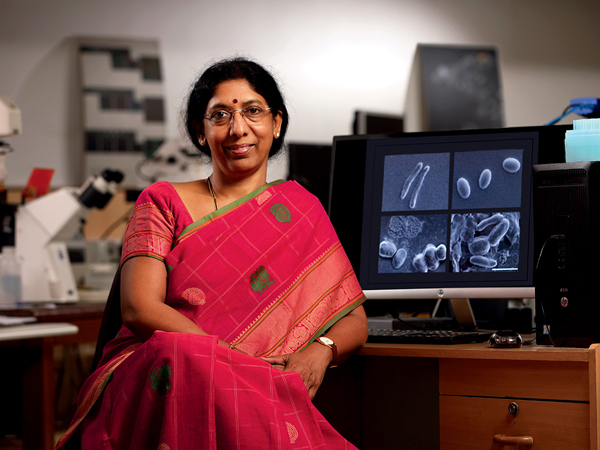
Life Sciences 2018
Roop Mallik
Professor, Department of Biological Sciences, Tata Institute of Fundamental Research, Mumbai
Read More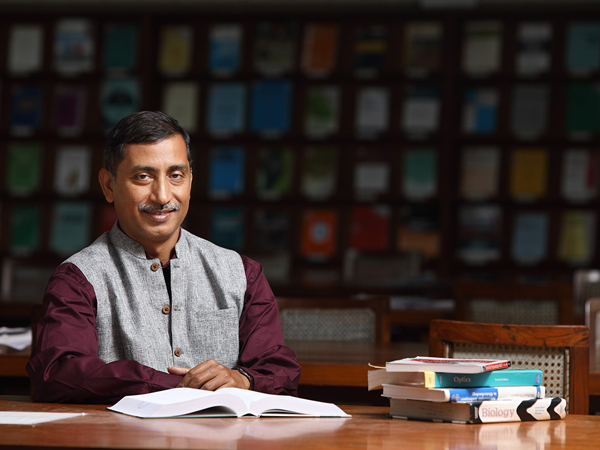
Life Sciences 2017
Upinder Singh Bhalla
Professor, National Centre for Biological Sciences, TIFR, Bengaluru
Read More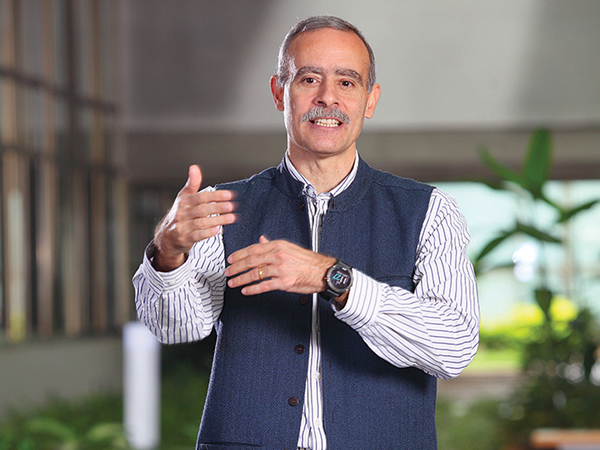
Life Sciences 2016
Gagandeep Kang
Executive Director of Translational Health Science and Technology Institute (THSTI), Faridabad
Read More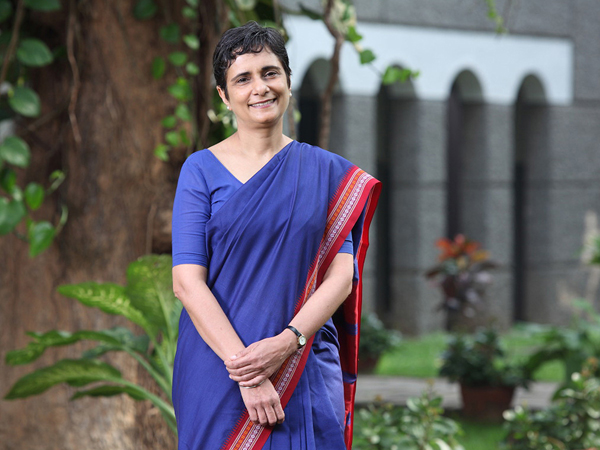
Life Sciences 2015
Amit Sharma
Head, Structural and Computational Biology Group, International Centre for Genetic Engineering and Biotechnology, New Delhi
Read More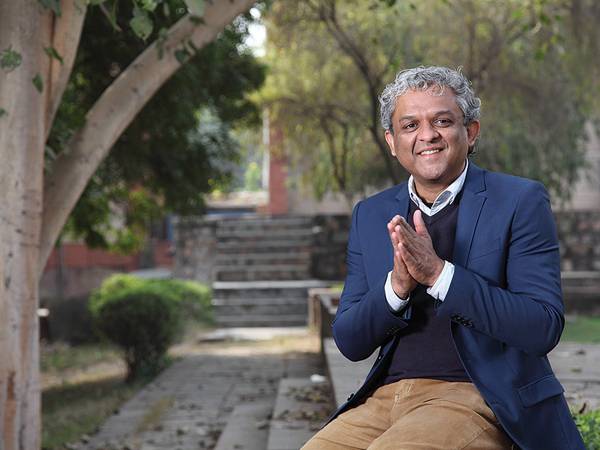
Life Sciences 2014
Shubha Tole
Professor, Department of Biological Sciences, Tata Institute of Fundamental Research, Mumbai, India
Read More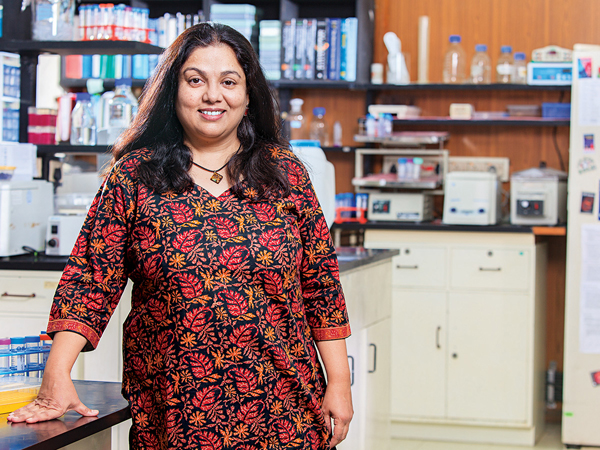
Life Sciences 2013
Rajesh S. Gokhale
Director, CSIR – Institute of Genomics and Integrative Biology, New Delhi
Read More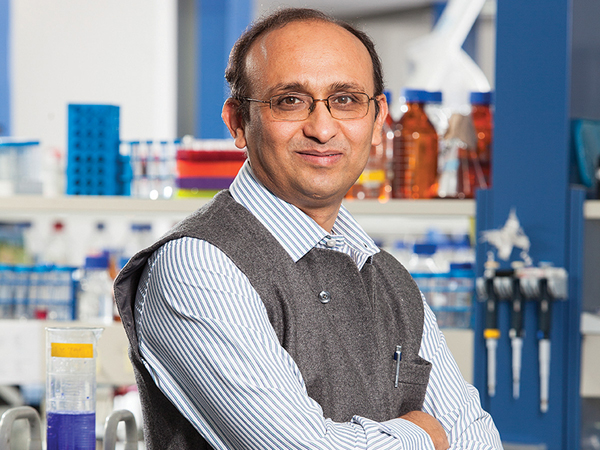
Life Sciences 2012
Satyajit Mayor
rofessor, Cellular Organisation and Signalling, National Centre for Biological Sciences, Bangalore
Read More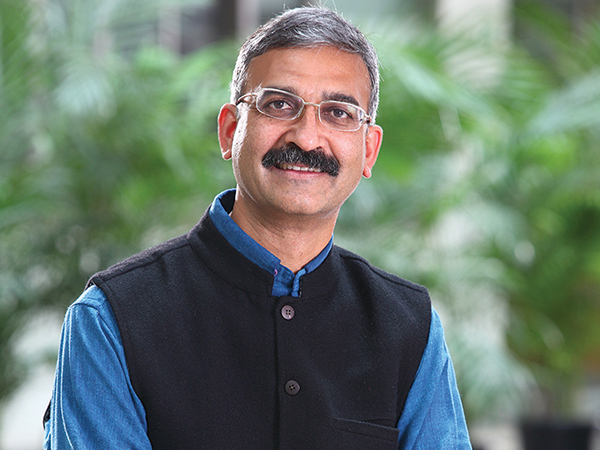
Life Sciences 2011
Imran Siddiqi
Scientist and Group Leader, Centre for Cellular and Molecular Biology, Hyderabad
Read More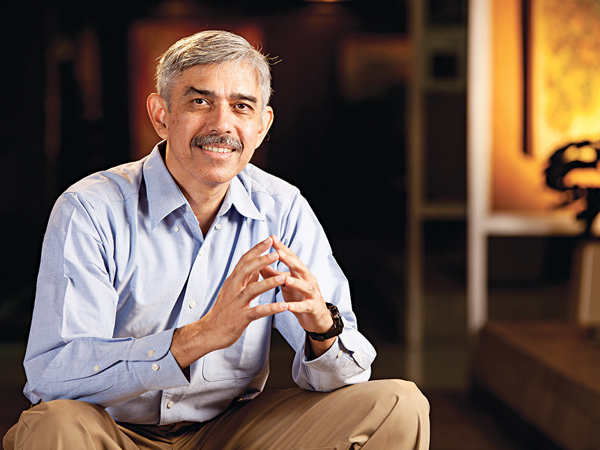
Life Sciences 2010
Chetan E. Chitnis
Principal Investigator, Malaria Research Group, International Centre for Genetic Engineering and Biotechnology, New Delhi
Read More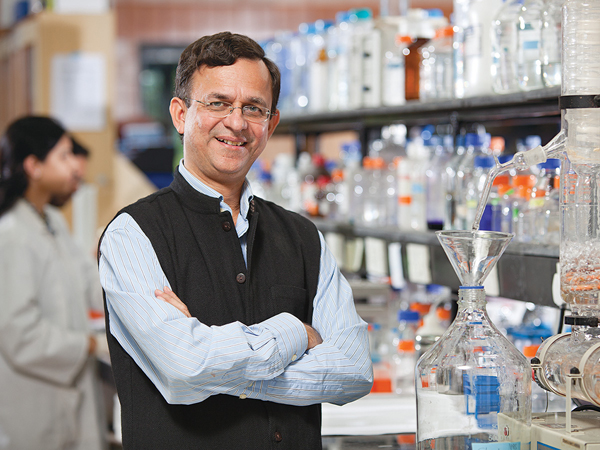
Life Sciences 2009
K VijayRaghavan
Distinguished Professor, National Centre for Biological Sciences, Bangalore, and Secretary, Department Of Biotechnology, Govt. of India
Read More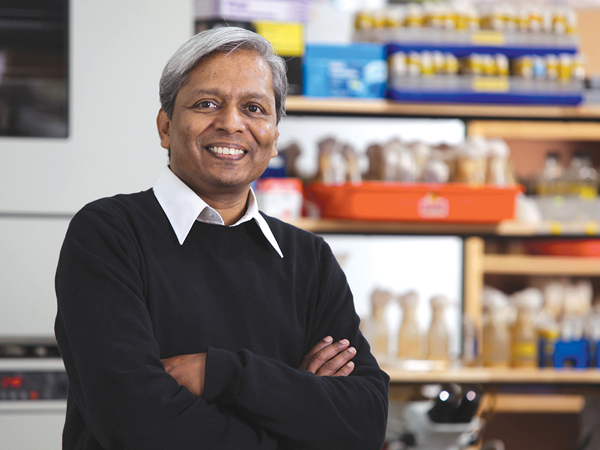
Jury
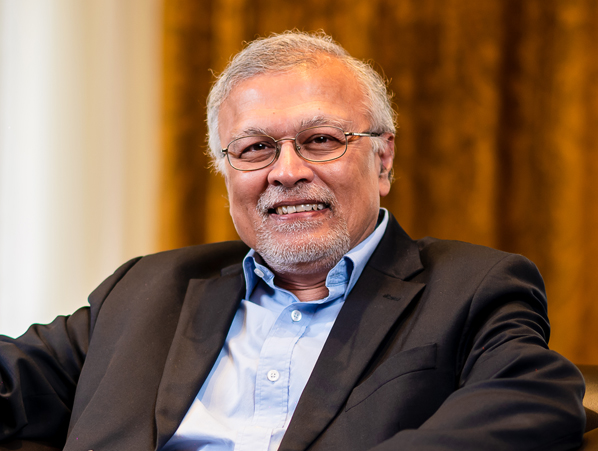
Mriganka Sur
Newton Professor of Neuroscience, Director, Simons Center for the Social Brain, Investigator, Picower Institute for Learning and Memory, Massachusetts Institute of Technology
View More
Mriganka Sur
Newton Professor of Neuroscience, Director, Simons Center for the Social Brain, Investigator, Picower Institute for Learning and Memory, Massachusetts Institute of Technology
View More
Mriganka Sur
Newton Professor of Neuroscience, Director, Simons Center for the Social Brain, Investigator, Picower Institute for Learning and Memory, Massachusetts Institute of Technology
View More
Prof. Mriganka Sur
Newton Professor of Neuroscience, Director, Simons Center for the Social Brain, Investigator, Picower Institute for Learning and Memory, Massachusetts Institute of Technology
View More
Prof. Mriganka Sur
Newton Professor of Neuroscience, Director, Simons Center for the Social Brain, Investigator, Picower Institute for Learning and Memory, Massachusetts Institute of Technology
View More
Prof. Mriganka Sur
Newton Professor of Neuroscience, Director, Simons Center for the Social Brain, Investigator, Picower Institute for Learning and Memory, Massachusetts Institute of Technology
View More
Prof. Mriganka Sur
Newton Professor of Neuroscience, Director, Simons Center for the Social Brain, Investigator, Picower Institute for Learning and Memory, Massachusetts Institute of Technology
View More
Prof. Mriganka Sur
Newton Professor of Neuroscience, Director, Simons Center for the Social Brain, Investigator, Picower Institute for Learning and Memory, Massachusetts Institute of Technology
View More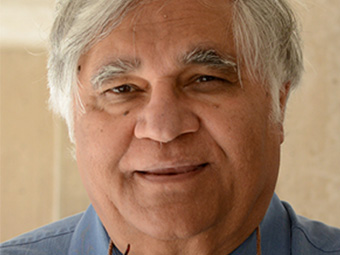
Prof. Inder Verma
American Cancer Society Professor and the first incumbent of the Irwin Mark Jacobs Chair in Exemplary Life Sciences, in the Laboratory of Genetics at the Salk Institute for Biological Studies, USA
View More
Prof. Inder Verma
American Cancer Society Professor and the first incumbent of the Irwin Mark Jacobs Chair in Exemplary Life Sciences, in the Laboratory of Genetics at the Salk Institute for Biological Studies, USA
View More
Dr. Inder Verma
American Cancer Society Professor and the first incumbent of the Irwin Mark Jacobs Chair in Exemplary Life Sciences, in the Laboratory of Genetics at the Salk Institute for Biological Studies, USA
View More
Dr. Inder Verma
American Cancer Society Professor (Emeritus) and the first incumbent of the Irwin and Joan Jacobs Chair in Exemplary Life Science, in the Laboratory of Genetics at the Salk Institute for Biological Studies and Editor-in-Chief of the Proceedings of the National Academy of Sciences, USA.
View More
Dr. Inder Verma
American Cancer Society Professor (Emeritus) and the first incumbent of the Irwin and Joan Jacobs Chair in Exemplary Life Science, in the Laboratory of Genetics at the Salk Institute for Biological Studies and Editor-in-Chief of the Proceedings of the National Academy of Sciences, USA.
View More
Inder Verma
American Cancer Society Professor and the first incumbent of the Irwin Mark Jacobs Chair in Exemplary Life Sciences, in the Laboratory of Genetics at the Salk Institute for Biological Studies, USA
View More
Prof. Inder Verma
Prof. Inder Verma is the American Cancer Society Professor and the first incumbent of the Irwin Mark Jacobs Chair in Exemplary Life Sciences, in the Laboratory of Genetics at the Salk Institute for Biological Studies, USA
View More
Prof. Inder Verma
Prof. Inder Verma is the American Cancer Society Professor and the first incumbent of the Irwin Mark Jacobs Chair in Exemplary Life Sciences, in the Laboratory of Genetics at the Salk Institute for Biological Studies, USA
View More
Prof. Inder Verma
Prof. Inder Verma is the American Cancer Society Professor and the first incumbent of the Irwin Mark Jacobs Chair in Exemplary Life Sciences, in the Laboratory of Genetics at the Salk Institute for Biological Studies, USA
View MoreLife Sciences 2025
Prof. Mriganka Sur is Director of the Simons Center for the Social Brain at MIT, which he founded after 15 years as head of MIT’s Department of Brain and Cognitive Sciences. He is a pioneer in studying the organization, plasticity and dynamics of the brain’s cerebral cortex using experimental and theoretical approaches. Prof. Sur has discovered fundamental principles by which networks of the cerebral cortex are wired during development and change dynamically during learning. His laboratory has identified gene networks underlying cortical plasticity, and invented high resolution imaging methods for studying cells, synapses and circuits of the intact brain. Sur’s group has demonstrated novel mechanisms underlying disorders of brain development and proposed innovative strategies for treating them.
Prof. Sur received a B. Tech. from IIT Kanpur, and a Ph.D. from Vanderbilt University, Nashville. He was named the Distinguished Alumnus Award of IIT-Kanpur also named among its top 50 alumni. Mriganka Sur is an elected Fellow of the Royal Society (UK), the US National Academy of Medicine, the American Academy of Arts and Sciences, the World Academy of Sciences, and the Indian National Science Academy.
Prof. Sankar Ghosh is the Chairman and Silverstein and Hutt Family Professor of Microbiology & Immunology at Columbia University. Prof. Ghosh is best known for his pioneering research on activation of cellular responses by nuclear factor kappa-light-chain-enhancer of activated B cells (NF-κB), a transcription factor that plays a critical role in regulating the expression of a large number of genes involved in the mammalian immune system.
Sankar Ghosh has won numerous accolades for his work and has been published extensively in several prominent peer-reviewed journals. Ghosh was elected to the American Academy of Arts & Sciences in 2023, to the National Academy of Medicine in 2022, and the National Academy of Sciences in 2021. In 2007, Prof. Ghosh was elected a Fellow of the American Association for the Advancement of Science for his "distinguished contributions to the field of immunology, particularly for studies of the NF-kB signaling pathway."
Imran Siddiqi is Emeritus Scientist at the Centre for Cellular and Molecular Biology, CSIR in Hyderabad. Dr. Imran Siddiqi’s areas of research interest are genetics, plant development and genetic recombination.
Dr. Siddiqi’s research centers around studying meiosis in plants using Arabidopsis as a model. His laboratory has identified and characterized genes that control key aspects of chromosome organization during meiosis: centromere configuration and cohesion, recombination, synapsis, and progression through the meiotic cell cycle. Information that has emerged from this work has provided leads with respect to molecular strategies for developing new methods of plant breeding that would lead to fixation of hybrid vigor in successive generations by a process called apomixis. Apomixis which occurs naturally in some plants, is the formation of asexual seeds bypassing meiotic chromosome reduction and fertilization of the egg cell so that the genotype of an apomictic embryo is identical to that of the parental plant. The possibility of harnessing apomixis for fixation of hybrid vigor and as a tool for plant breeding has important implications for agriculture.
Dr. Siddiqi completed his M.Sc. in Chemistry from the Indian Institute of Technology Bombay. He was awarded his Ph.D. by the University of Oregon. Dr. Siddiqi's postdoctoral work was carried out in Indian Institute of Science, Bengaluru. Dr. Siddiqi was awarded the Infosys Prize in Life Sciences in 2011.
Satyajit (Jitu) Mayor is a cell biologist. He is currently the Leverhulme International Professor at Centre for Mechanochemical Cell Biology, University of Warwick, UK and Distinguished Professor (on lien) at National Centre for Biological Science (NCBS), Tata Institute for Fundamental Research, India.
Mayor studied Chemistry at the Indian Institute of Technology, Mumbai, India and obtained his Ph.D. in the Life Sciences from The Rockefeller University, New York, USA studying the biosynthesis of GPI-anchors in Trypanosomes. In his laboratory at NCBS he studies the fine structure, function and dynamics of the membrane of living cells using methods derived from biology, chemistry, engineering, and physics.
He has served as the Director of the NCBS, the Institute for Stem Cell Science and Regenerative Medicine and founding Chairperson of the Bangalore Life Science Cluster. He is a member of the US National Academy of Science, The World Academy of Science (TWAS), Trieste, Italy, Indian National Science Academy, New Delhi and the National Academy of Science, Bangalore India, and Associate Member of the European Molecular Biology Organization (EMBO).
Paola Arlotta is the Golub Family Professor and Chair of the Department of Stem Cell and Regenerative Biology at Harvard University. Prof. Arlotta is a principal faculty member at the Harvard Stem Cell Institute, an institute member at the Broad Institute, and an associate member of the Stanley Center for Psychiatric Research at the Broad Institute. Prof. Arlotta’s research focuses on the development of neuron types in the cerebral cortex.
The Arlotta lab research program explores the interface between development and engineering of the neocortex, to gain fundamental understanding of both the principles that govern normal cortical development and of previously inaccessible mechanisms of human neurodevelopmental disease.
Prof. Paola Arlotta received her M.S. in Biochemistry from the University of Trieste, Italy, and her Ph.D. in Molecular Biology from the University of Portsmouth in the UK. She subsequently completed her postdoctoral training in neuroscience at Harvard Medical School.
Tejal A. Desai is currently the Sorensen Family Dean of Engineering at Brown University. An accomplished biomedical engineer and academic leader, Desai’s research spans multiple disciplines including materials engineering, cell biology, tissue engineering, and pharmacological delivery systems to develop new therapeutic interventions for disease. She seeks to design new platforms, enabled by advances in micro and nanotechnology, to overcome challenges in therapeutic delivery. Prof. Desai has published over 275 peer-reviewed papers and patents.
Prof. Desai was elected to the National Academy of Engineering in 2024. The academy honored her for her work in “nanofabricated materials to control biologics delivery”, as well as her “leadership in the fields of nanotechnology and regenerative medicine.” She was also elected to the National Academy of Medicine in 2015 and the National Academy of Inventors in 2019. She was President of the American Institute for Medical and Biological Engineering and is a fellow of AIMBE, IAMBE, CRS, and BMES. In 2023, Desai was awarded the Robert A. Pritzker Distinguished Lecture Award at the Biomedical Engineering Society Annual Meeting — the highest honor the organization can bestow upon an individual who has demonstrated impactful leadership and accomplishments in biomedical engineering science and practice.
Tejal Desai is a vocal advocate for education and outreach to historically underrepresented groups in STEM and addressing workforce disparities in science/engineering. Prof. Desai’s work to cultivate a climate of inclusion has earned numerous honors and awards, including the AWIS Judith Poole Award in Mentorship, the 2021 UCSF Chancellor Award for the Advancement of Women, and the 2022 Controlled Release Woman in Science Award. She received her B.S. from Brown University in biomedical engineering in 1994, and was awarded a Ph.D. in bioengineering jointly from UCSF and UC Berkeley in 1998.
Life Sciences 2024
Prof. Mriganka Sur is Director of the Simons Center for the Social Brain at MIT, which he founded after 15 years as head of MIT’s Department of Brain and Cognitive Sciences. He is a pioneer in studying the organization, plasticity and dynamics of the brain’s cerebral cortex using experimental and theoretical approaches. Prof. Sur has discovered fundamental principles by which networks of the cerebral cortex are wired during development and change dynamically during learning. His laboratory has identified gene networks underlying cortical plasticity, and invented high resolution imaging methods for studying cells, synapses and circuits of the intact brain. Sur’s group has demonstrated novel mechanisms underlying disorders of brain development and proposed innovative strategies for treating them.
Prof. Sur received a B. Tech. from IIT Kanpur, and a Ph.D. from Vanderbilt University, Nashville. He was named the Distinguished Alumnus Award of IIT-Kanpur also named among its top 50 alumni. Mriganka Sur is an elected Fellow of the Royal Society (UK), the US National Academy of Medicine, the American Academy of Arts and Sciences, the World Academy of Sciences, and the Indian National Science Academy.
Satyajit (Jitu) Mayor is a cell biologist. He is currently the Leverhulme International Professor at Centre for Mechanochemical Cell Biology, University of Warwick, UK and Distinguished Professor (on lien) at National Centre for Biological Science (NCBS), Tata Institute for Fundamental Research, India.
Mayor studied Chemistry at the Indian Institute of Technology, Mumbai, India and obtained his Ph.D. in the Life Sciences from The Rockefeller University, New York, USA studying the biosynthesis of GPI-anchors in Trypanosomes. In his laboratory at NCBS he studies the fine structure, function and dynamics of the membrane of living cells using methods derived from biology, chemistry, engineering, and physics.
He has served as the Director of the NCBS, the Institute for Stem Cell Science and Regenerative Medicine and founding Chairperson of the Bangalore Life Science Cluster. He is a member of the US National Academy of Science, The World Academy of Science (TWAS), Trieste, Italy, Indian National Science Academy, New Delhi and the National Academy of Science, Bangalore India, and Associate Member of the European Molecular Biology Organization (EMBO).
Paola Arlotta is the Golub Family Professor and Chair of the Department of Stem Cell and Regenerative Biology at Harvard University. Prof. Arlotta is a principal faculty member at the Harvard Stem Cell Institute, an institute member at the Broad Institute, and an associate member of the Stanley Center for Psychiatric Research at the Broad Institute. Prof. Arlotta’s research focuses on the development of neuron types in the cerebral cortex.
The Arlotta lab research program explores the interface between development and engineering of the neocortex, to gain fundamental understanding of both the principles that govern normal cortical development and of previously inaccessible mechanisms of human neurodevelopmental disease.
Prof. Paola Arlotta received her M.S. in Biochemistry from the University of Trieste, Italy, and her Ph.D. in Molecular Biology from the University of Portsmouth in the UK. She subsequently completed her postdoctoral training in neuroscience at Harvard Medical School.
Lalita Ramakrishnan is Professor of Immunology and Infectious Diseases at the University of Cambridge, Group Leader at the MRC Laboratory of Molecular Biology and Honorary Consultant in infectious diseases at Cambridge University Hospital. Prof. Ramakrishnan’s research is focused on understanding tuberculosis pathogenesis and the basis of vastly different susceptibilities to TB. She also explores how TB bacteria develop drug resistance and tolerance.
After getting her M.B.B.S. from Baroda Medical College, Ramakrishnan did her Ph.D. in Immunology at Tufts University, followed by medical residency at Tufts- New England Medical Center and Infectious Diseases Fellowship at University of California, San Francisco. She initiated TB research in 1992 as a postdoctoral fellow with Stanley Falkow at Stanford University. As a starting faculty at the University of Washington in 2001, she pioneered the zebrafish model of TB. Her work has led to fundamental insights into how the TB bacteria evade and exploit host processes and develop drug resistance, which suggest new approaches to TB therapy. Two of her discoveries have led to TB clinical studies and trials.
In 2014, Prof. Lalita Ramakrishnan was recruited to the University of Cambridge. She is a Fellow of the Royal Society and the Academy of Medical Sciences and a member of the National Academy of Sciences, the European Molecular Biology Organization and the American Academy of Microbiology. She is the recipient of the 2024 Robert Koch Prize.
Imran Siddiqi is Emeritus Scientist at the Centre for Cellular and Molecular Biology, CSIR in Hyderabad. Dr. Imran Siddiqi’s areas of research interest are genetics, plant development and genetic recombination.
Dr. Siddiqi’s research centers around studying meiosis in plants using Arabidopsis as a model. His laboratory has identified and characterized genes that control key aspects of chromosome organization during meiosis: centromere configuration and cohesion, recombination, synapsis, and progression through the meiotic cell cycle. Information that has emerged from this work has provided leads with respect to molecular strategies for developing new methods of plant breeding that would lead to fixation of hybrid vigor in successive generations by a process called apomixis. Apomixis which occurs naturally in some plants, is the formation of asexual seeds bypassing meiotic chromosome reduction and fertilization of the egg cell so that the genotype of an apomictic embryo is identical to that of the parental plant. The possibility of harnessing apomixis for fixation of hybrid vigor and as a tool for plant breeding has important implications for agriculture.
Dr. Siddiqi completed his M.Sc. in Chemistry from the Indian Institute of Technology Bombay. He was awarded his Ph.D. by the University of Oregon. Dr. Siddiqi's post doctoral work was carried out in Indian Institute of Science, Bengaluru. Dr. Siddiqi was awarded the Infosys Prize in Life Sciences in 2011.
Prof. Gagandeep Kang is the first woman from India to be elected a Fellow of the Royal Society. She is also the first Indian woman to be elected to Fellowship of the American Academy of Microbiology and the only physician-scientist to receive the Infosys Award in Life Sciences. She received her training in medicine and microbiology at the Christian Medical College, Vellore and postdoctoral training in the UK and US before returning to India to continue her work on enteric infections in children. With Indian and global collaborators, Prof. Kang has worked on the development and use of vaccines for rotaviruses, cholera and typhoid, conducting large studies to define burden, test vaccines and measure their impact. She studies the consequences of enteric infections and has shown that infections in early life impact nutrition, future growth and cognitive development. Gagandeep Kang was awarded the Infosys Prize in Life Sciences in 2016 for her contributions to understanding the natural history of rotavirus and other infectious diseases.
Life Sciences 2023
Prof. Mriganka Sur is Director of the Simons Center for the Social Brain at MIT, which he founded after 15 years as head of MIT’s Department of Brain and Cognitive Sciences. He is a pioneer in studying the organization, plasticity and dynamics of the brain using experimental and theoretical approaches. Prof. Sur has discovered fundamental principles by which networks of the cerebral cortex are wired during development and change dynamically during learning. His laboratory has identified gene networks underlying cortical plasticity, and invented high resolution imaging methods for studying cells, synapses and circuits of the intact brain. Sur’s group has demonstrated novel mechanisms underlying disorders of brain development and proposed innovative strategies for treating them.
Prof. Sur received a B. Tech. from IIT Kanpur, and a Ph.D. from Vanderbilt University, Nashville. He was named the Distinguished Alumnus Award of IIT-Kanpur also named among its top 50 alumni. Mriganka Sur is an elected Fellow of the Royal Society (UK), the US National Academy of Medicine, the American Academy of Arts and Sciences, the World Academy of Sciences, and the Indian National Science Academy.
Prof. Gagandeep Kang is the first woman from India to be elected a Fellow of the Royal Society. She is also the first Indian woman to be elected to Fellowship of the American Academy of Microbiology and the only physician-scientist to receive the Infosys Award in Life Sciences. She received her training in medicine and microbiology at the Christian Medical College, Vellore and postdoctoral train the UK and US before returning to India to continue her work on enteric infections in children. With Indian and global collaborators, Prof. Kang has worked on the development and use of vaccines for rotaviruses, cholera and typhoid, conducting large studies to define burden, test vaccines and measure their impact. She studies the consequences of enteric infections and has shown that infections in early life impact nutrition, future growth and cognitive development. Gagandeep Kang was awarded the Infosys Prize in Life Sciences in 2016 for her contributions to understanding the natural history of rotavirus and other infectious diseases.
Prof. Anjana Rao is a cellular and molecular biologist. She uses immune cells as well as other types of cells to understand intracellular signaling and gene expression. Prof. Rao's areas of research include signal transduction and gene transcription in immune and other cell types; mechanisms of store-operated calcium entry; mechanisms of action of immunosuppressive drugs; transcriptional mechanisms underlying immune tolerance; chromatin-based mechanisms of gene regulation and cell lineage specification.
Anjana Rao obtained her M.Sc. in Physics from Osmania University in India and went on to obtain a Ph.D. in Biophysics from Harvard University. Following a postdoc at Dana-Farber Cancer Institute, Prof. Rao joined Harvard Medical School as a Professor of Pathology, a post she held until 2010, when she moved to La Jolla Institute of Immunology. She is also Adjunct Professor of Pharmacology at UC San Diego.Along with her collaborator, Patrick Hogan at La Jolla, Rao founded the company Calcimedica.
Prof. Anjana Rao was a member of the Jane Coffin Childs Board of Scientific Advisors, a foundation that supports cancer, for eight years. She is also a member of the Scientific Advisory Board of the Cancer Research Institute, a non-profit organization that supports scientific research on cancer immunotherapy.
Anjana Rao has been elected to the US National Academy of Sciences, American Academy of Arts and Sciences, American Association for the Advancement of Science, American Association of Immunologists and the American Society for Biochemistry and Molecular Biology.
Scott V. Edwards is the Alexander Agassiz Professor of Zoology and Curator of Ornithology in the Museum of Comparative Zoology at Harvard University. Prof. Edward’s research focuses on aspects of avian biology such as evolutionary history, biogeography, disease ecology, population genetics, and comparative genomics. From 2013-2015 Prof. Edwards served as the Division Director of the Division of Biological Infrastructure at the US National Science Foundation. He has served as the President of Society for the Study of Evolution, the Society of Systematic Biologists, and the American Genetic Association. In addition, he was on National Geographic’s Committee for Research and Exploration, the Senior Advisory Boards of the NSF-funded US National Evolutionary Synthesis Center (NESCent) and the National Institute for Mathematical and Biological Synthesis (NIMBioS), and on the Advisory Boards of the National Museum of Natural History at the Smithsonian and the Cornell Lab of Ornithology. Prof. Edwards is a member of the American Academy of Arts and Sciences (2009), a Member of the American Philosophical Society (2020), and a member the National Academy of Sciences (2015).
Prof. Jane Langdale, CBE FRS FAA, is a British plant biologist and academic. Prof. Langdale's research is broadly themed upon the genetics and evolution of plant development. Her past research used diverse taxa including mosses, lycophytes, ferns and seed plants to investigate how developmental mechanisms were modified during land plant evolution. Currently, her research is focused on dissecting the genetic mechanisms that pattern the distinctive leaf anatomy found in plants that carry out C4 photosynthesis. This work is carried out with a view to understanding how developmental mechanisms were altered as the more efficient C4 pathway evolved, and with the long-term aim of engineering C4 anatomy into agronomically important C3 crops such as rice.
Langdale was elected a member of the European Molecular Biology Organization (EMBO) in 2007 and appointed Commander of the Most Excellent Order of the British Empire (CBE) in 2018 for services to Plant Science. She was awarded a Doctor of Science degree (D.Sc.) honoris causa by the University of Bath in 2018. Jane Langdale was elected an International Member of the National Academy of Sciences of the United States in 2019 and a Corresponding Member of the Australian Academy of Science in 2020.
K. VijayRaghavan is an Emeritus Professor and Former Director of the National Centre for Biological Sciences and has formerly served as the Principal Scientific Advisor to the Government of India. Prof. VijayRaghavan’s research interests are in the fields of developmental biology, genetics, and neurogenetics. His group studies the principles and mechanisms that control the nervous system and muscles during development, and how these neuromuscular systems direct specific locomotor behaviors. VijayRaghavan is a Fellow of the Indian Science Academies, the Royal Society. He is a foreign member of the US National Academy of Sciences and a foreign member of the American Philosophical Society. Prof. VijayRaghavan and was conferred the Padma Shri in 2013 by the Government of India.
Life Sciences 2022
Prof. Mriganka Sur is Director of the Simons Center for the Social Brain at MIT, which he founded after 15 years as head of MIT’s Department of Brain and Cognitive Sciences. He is a pioneer in studying the organization, plasticity and dynamics of the brain’s cerebral cortex using experimental and theoretical approaches. He has discovered fundamental principles by which networks of the cerebral cortex are wired during development and change dynamically during learning. His laboratory has identified gene networks underlying cortical plasticity, and invented high resolution imaging methods for studying cells, synapses and circuits of the intact brain. His group has demonstrated novel mechanisms underlying disorders of brain development, and proposed innovative strategies for treating them.
Prof. Sur received a B. Tech. from IIT Kanpur, and a Ph.D. from Vanderbilt University, Nashville. He has received the Distinguished Alumnus Award of IIT Kanpur, and named among its top 50 alumni. He is an elected Fellow of the Royal Society (UK), the US National Academy of Medicine, the American Academy of Arts and Sciences, the World Academy of Sciences, and the Indian National Science Academy.
Prof. Gagandeep Kang is the first woman from India to be elected a Fellow of the Royal Society. She is also the first Indian woman to be elected to Fellowship of the American Academy of Microbiology and the only physician-scientist to receive the Infosys Award in Life Sciences. She received her training in medicine and microbiology at the Christian Medical College, Vellore and post-doctoral training in the UK and US before returning to India to continue her work on enteric infections in children. With Indian and global collaborators, she has worked on the development and use of vaccines for rotaviruses, cholera and typhoid, conducting large studies to define burden, test vaccines and measure their impact. She studies the consequences of enteric infections and has shown that infections in early life impact nutrition, future growth and cognitive development. She was awarded the Infosys Prize in Life Sciences in 2016 for her contributions to understanding the natural history of rotavirus and other infectious diseases.
Prof. Ron Vale received his Ph.D. in Neurosciences from Stanford University in 1985 and was a faculty member at the University of California from 1986-2021. He currently serves as the Executive Director of the Janelia Research Campus and Vice-President of the Howard Hughes Medical Institute. Prof. Vale discovered the motor protein “kinesin” and his laboratory was involved in understanding how motor proteins produce movement using structural and single molecule approaches. His lab also investigates the cell biological and biochemical mechanism of T cell and macrophage signaling.
Vale started various open education and community-building activities, including iBiology, the Explorer’s Guide to Biology, ASAPbio (Accelerating Science and Publication in biology), and the open source microscopy software MicroManager. Vale has been active in helping young scientists in India by starting the Young Investigator Meetings, the Bangalore Microscopy Course, and the website, and now organization, IndiaBioscience.
Prof. Ron Vale received the Lasker Award in Basic Medical Research, Canada Gairdner Award for Biomedical Research, Shaw Prize in Life Sciences, Massry Prize, Wiley Prize, and the Pfizer Award in Enzyme Chemistry. He was elected to the National Academy of Sciences, the National Academy of Medicine, the American Academy of Arts and Sciences, the European Molecular Biology Organization, and the Indian National Science Academy.
K. VijayRaghavan is a distinguished professor and former director of the National Centre for Biological Sciences and has formerly served as the Principal Scientific Advisor to The Government of India. His research interests are in the fields of developmental biology, genetics, and neurogenetics. His group studies the principles and mechanisms that control the nervous system and muscles during development, and how these neuromuscular systems direct specific locomotor behaviors. VijayRaghavan is a Fellow of the Indian Science Academies, the Royal Society. He is a foreign member of the US National Academy of Sciences and a foreign member of the American Philosophical Society. Prof. VijayRaghavan and was conferred the Padma Shri in 2013 by the Government of India.
Scott V. Edwards is the Alexander Agassiz Professor of Zoology and Curator of Ornithology in the Museum of Comparative Zoology at Harvard University. Prof. Edward’s research focuses on aspects of avian biology such as evolutionary history, biogeography, disease ecology, population genetics, and comparative genomics. From 2013-2015 Prof. Edwards served as the Division Director of the Division of Biological Infrastructure at the US National Science Foundation. He has served as the President of Society for the Study of Evolution, the Society of Systematic Biologists, and the American Genetic Association. In addition he was on National Geographic’s Committee for Research and Exploration, the Senior Advisory Boards of the NSF-funded US National Evolutionary Synthesis Center (NESCent) and the National Institute for Mathematical and Biological Synthesis (NIMBioS), and on the Advisory Boards of the National Museum of Natural History at the Smithsonian and the Cornell Lab of Ornithology. Prof. Edwards is a member of the American Academy of Arts and Sciences (2009), a Member of the American Philosophical Society (2020), and a member the National Academy of Sciences (2015).
Prof. Jane Langdale CBE FRS FAA is a British plant biologist and academic. Prof. Langdale's research is broadly themed upon the genetics and evolution of plant development. Her past research used diverse taxa including mosses, lycophytes, ferns and seed plants to investigate how developmental mechanisms were modified during land plant evolution. Currently, the research is focused on dissecting the genetic mechanisms that pattern the distinctive leaf anatomy found in plants that carry out C4 photosynthesis. This work is carried out with a view to understanding how developmental mechanisms were altered as the more efficient C4 pathway evolved, and with the long-term aim of engineering C4 anatomy into agronomically important C3 crops such as rice.
Langdale was elected a member of the European Molecular Biology Organization (EMBO) in 2007 and appointed Commander of the Most Excellent Order of the British Empire (CBE) in 2018 for services to Plant Science. She was awarded a Doctor of Science degree (DSc) honoris causa by the University of Bath in 2018. She was elected an International Member of the National Academy of Sciences of the United States in 2019 and a Corresponding Member of the Australian Academy of Science in 2020.
Life Sciences 2021
Prof. Mriganka Sur is Director of the Simons Center for the Social Brain at MIT, which he founded after 15 years as head of MIT’s Department of Brain and Cognitive Sciences. He is a pioneer in studying the organization, plasticity and dynamics of the brain’s cerebral cortex using experimental and theoretical approaches. He has discovered fundamental principles by which networks of the cerebral cortex are wired during development and change dynamically during learning. His laboratory has identified gene networks underlying cortical plasticity, and invented high resolution imaging methods for studying cells, synapses and circuits of the intact brain. His group has demonstrated novel mechanisms underlying disorders of brain development, and proposed innovative strategies for treating them.
Prof. Sur received a B. Tech. from IIT Kanpur, and a Ph.D. from Vanderbilt University, Nashville. He has received the Distinguished Alumnus Award of IIT Kanpur, and named among its top 50 alumni. He is an elected Fellow of the Royal Society (UK), the US National Academy of Medicine, the American Academy of Arts and Sciences, the American Association for the Advancement of Science, the World Academy of Sciences, and the Indian National Science Academy.
A pathologist by training, Dr. Vishva M. Dixit has studied molecular mechanisms that underlie cell death and inflammatory signaling. In particular, he is known for the breakthrough discovery that a cysteine protease (caspase) is a component of the death receptor-induced apoptotic pathway - a finding that allowed his laboratory and others to then elucidate the entire 'death cascade'. Born in Kenya in 1956, he went to medical school at the University of Nairobi and, after clinical work at the Kenyatta National Hospital, pursued a residency in Pathology at Washington University in St. Louis. He joined the Department of Pathology at the University of Michigan in 1986 as an Assistant Professor. In 1997, he left the University of Michigan to join Genentech as Director of Oncology. He is a member of the National Academy of Sciences, the National Academy of Medicine, the American Academy of Arts and Sciences and a Foreign Member, European Molecular Biology Organization. In 2021 he was elected a Foreign Member of the Royal Society as well as a Foreign Member of The Royal Netherlands Academy of Arts and Sciences.
Prof. Shubha Tole is a neuroscientist interested in the development and evolution of the mammalian brain. Prof. Tole obtained her B.Sc. in Life Sciences and Biochemistry from St. Xavier's College, Mumbai (1987). Her M.Sc. and Ph.D. are from Caltech, USA. She worked at the University of Chicago as a post-doctoral fellow, and then joined the Tata Institute in Mumbai, India as a faculty member in 1999, where she currently serves as the Dean of Graduate Studies. Her research uses genetic ‘knockout’ mice and human embryonic stem cell organoids to explore questions such as: how progenitor cells in the brain know what kind of daughter cell to produce- neuron non-neuronal support cells? How do neurons form the correct connectivity so that we may perceive the world?
Tole is committed to public outreach, education, and mentorship and has written several blogs aimed at students and young scientists for www.indiabioscience.org.
For her “significant contributions to our understanding of how the brain's structure and circuitry are formed in the embryo”, Tole was awarded the Infosys Prize for Life Sciences in 2014. She has also received the Shanti Swarup Bhatnagar Award (2010), the Research Award for Innovation in Neurosciences (RAIN award) from the Society for Neuroscience, USA (2008), the National Woman Bioscientist award from the Department of Biotechnology, Government of India (2008), the Swarnajayanti Fellowship from the Department of Science and Technology, Government of India (2005), and the Wellcome Trust Senior International Fellowship (1999).
Prof. Tim Mitchison, Ph.D. received his B.A. in Biochemistry from Oxford University, England, in 1980, and his Ph.D. from the University of California, San Francisco (UCSF), in Biochemistry and Biophysics in 1984, where he worked with Professor Marc Kirschner. At this time he discovered the dynamic instability of microtubules. Later he worked at the National Institute for Medical Research in London. In 1987 he returned to San Francisco to become an Assistant Professor at UCSF. In 1997 he moved to the Cell Biology Department at Harvard Medical School where he co-founded the Institute for Chemistry and Cell Biology.
Prof. Mitchison was a founding member of the HMS Department of Systems Biology at Harvard University, which started in 2004. He is currently Deputy Chair of the department, and Co-director of the Systems Biology PhD Program. He was elected a Fellow of the Royal Society in 1997, and member of the American Association of Arts and Sciences in 2008. In 2010 he served as President of the American Society of Cell Biology. And most recently in 2014 he became a member of the National Academy of Sciences.
Professor Iwasaki received her Ph.D. in Immunology from the University of Toronto (1998) and completed her postdoctoral training at the National Institutes of Health before joining Yale’s faculty in 2000. She has received awards and honors, including the Burroughs Wellcome Fund Career Award in Biomedical Sciences, the Wyeth Lederle Young Investigator Award, Burroughs Wellcome Fund Investigator in Pathogenesis of Infectious Diseases, the BD Biosciences Investigator Award, the Seymour & Vivian Milstein Award for Excellence in Interferon and Cytokine Research, and the Meritorious Career Award from the American Association of Immunologists. Professor Iwasaki has been a Howard Hughes Medical Institute Investigator since 2014. She was elected to the National Academy of Sciences in 2018, the National Academy of Medicine in 2019, to the American Academy of Microbiology in 2020, and to the American Academy of Arts and Sciences in 2021. Dr. Iwasaki is at the forefront of COVID-19 pandemic, with respect to research, science communication, and public service. Dr. Iwasaki is also well known for her advocacy on women and underrepresented minority in the science and medicine fields and has a large follower base on social media.
Prof. Jane Langdale CBE FRS FAA is a British plant biologist and academic. Prof. Langdale's research is broadly themed upon the genetics and evolution of plant development. Her past research used diverse taxa including mosses, lycophytes, ferns and seed plants to investigate how developmental mechanisms were modified during land plant evolution. Currently, the research is focused on dissecting the genetic mechanisms that pattern the distinctive leaf anatomy found in plants that carry out C4 photosynthesis. This work is carried out with a view to understanding how developmental mechanisms were altered as the more efficient C4 pathway evolved, and with the long-term aim of engineering C4 anatomy into agronomically important C3 crops such as rice.
Langdale was elected a member of the European Molecular Biology Organization (EMBO) in 2007 and appointed Commander of the Most Excellent Order of the British Empire (CBE) in 2018 for services to Plant Science. She was awarded a Doctor of Science degree (DSc) honoris causa by the University of Bath in 2018. She was elected an International Member of the National Academy of Sciences of the United States in 2019 and a Corresponding Member of the Australian Academy of Science in 2020.
Life Sciences 2020
Prof. Mriganka Sur is Director of the Simons Center for the Social Brain at MIT, which he founded after 15 years as head of MIT’s Department of Brain and Cognitive Sciences. He is a pioneer in studying the organization, plasticity and dynamics of the brain’s cerebral cortex using experimental and theoretical approaches. He has discovered fundamental principles by which networks of the cerebral cortex are wired during development and change dynamically during learning. His laboratory has identified gene networks underlying cortical plasticity, and invented high resolution imaging methods for studying cells, synapses and circuits of the intact brain. His group has demonstrated novel mechanisms underlying disorders of brain development, and proposed innovative strategies for treating them.
Prof. Sur received a B. Tech. from IIT Kanpur, and a Ph.D. from Vanderbilt University, Nashville. He has received the Distinguished Alumnus Award of IIT Kanpur, and named among its top 50 alumni. He is an elected Fellow of the Royal Society (UK), the US National Academy of Medicine, the American Academy of Arts and Sciences, the American Association for the Advancement of Science, the World Academy of Sciences, and the Indian National Science Academy.
A pathologist by training, Dr. Vishva M. Dixit has studied molecular mechanisms that underlie cell death and inflammatory signaling. In particular, he is known for the breakthrough discovery that a cysteine protease (caspase) is a component of the death receptor-induced apoptotic pathway - a finding that allowed his laboratory and others to then elucidate the entire 'death cascade'. Born in Kenya in 1956, he went to medical school at the University of Nairobi and, after clinical work at the Kenyatta National Hospital, pursued a residency in Pathology at Washington University in St. Louis. He joined the Department of Pathology at the University of Michigan in 1986 as an Assistant Professor. In 1997, he left the University of Michigan to join Genentech as Director of Oncology. He is a member of the National Academy of Sciences, the National Academy of Medicine, the American Academy of Arts and Sciences and a Foreign Member, European Molecular Biology Organization.
Dr. Mary Beckerle obtained her undergraduate training at Wells College and earned a Ph.D. in Molecular, Cellular, and Developmental Biology at the University of Colorado at Boulder where she provided the initial evidence for a cytoplasmic dynein in microtubule-based intracellular transport. While a post-doctoral fellow at the University of North Carolina at Chapel Hill, she demonstrated the presence of a protease at cell-substratum adhesion sites, providing some of the earliest evidence that focal adhesions are dynamic, regulatory structures. She subsequently identified zinc finger proteins, such as zyxin, as focal adhesion constituents and demonstrated shuttling of focal adhesion proteins to the nucleus. In recent work, Dr. Beckerle’s research team has elucidated novel pathways for the control of cell motility and has defined the mechanism by which cells reinforce their actin cytoskeletons in response to mechanical stress. Dr. Beckerle currently serves on the Medical Advisory Board of the Howard Hughes Medical Institute, the Management Board of the National Centre for Biological Sciences in India, and the External Advisory Boards of several NCI-designated comprehensive cancer centers. In 2018, the American Academy of Arts and Sciences appointed Dr. Beckerle to the Advisory Committee on Science, Engineering, and Technology. She is also a member of NCI’s Board of Scientific Advisors since 2018. Her honors include receipt of a Guggenheim Fellowship, the American Cancer Society Sword of Hope Award, and the Utah Governor’s Medal for Science and Technology.
Prof. John Kuriyan is a Howard Hughes Medical Institute (HHMI) Investigator and Professor at the University of California, Berkeley. He received a B.S. degree in chemistry from Juniata College, Pennsylvania, and a Ph.D. degree from the Massachusetts Institute of Technology, where he worked with Gregory Petsko and Martin Karplus (Harvard University) on the dynamics of proteins. Prof. Kuriyan was appointed as an Assistant Professor at The Rockefeller University, New York in 1987, and an investigator of the Howard Hughes Medical Institute in 1990. He later moved to the University of California, Berkeley in 2001. His research focuses primarily on construction, mechanism, and regulation of molecular machines and switching devices that carry out signal transduction and DNA replication.
Prof. Kuriyan is a Member of the National Academy of Medicine (USA), Foreign Member of The Royal Society, a Fellow of the American Academy of Arts and Sciences, and a Member of the US National Academy of Sciences.
Prof. Caroline Dean is internationally recognised for her work on epigenetic regulation in plants. She has used genetic, molecular and ecological approaches to dissect chromatin dynamics that quantitatively regulate gene expression and enable switching between epigenetic states. This mechanistic analysis is focused on one gene that plays a central role in seasonal timing in plants, but the discoveries she has made are relevant to all eukaryotes.
Prof. Dean is a Fellow/Member of three national science academies: UK, USA, Germany. In 2014 she was awarded the BBSRC’s Excellence in Bioscience award and in 2015 she was recipient of the prestigious FEBS | EMBO Women in Science Award which recognises just one female scientist across the whole of Europe for their contributions to research in molecular biology and biochemistry, and for their wider contribution as a female role model in science. In 2016, she was made a Dame Commander of the Order of the British Empire for her work in understanding epigenetic regulation and for her commitment to advancing careers for women working in science (Queen’s Birthday Honors List).
Prof. Gagandeep Kang is the first woman from India to be elected a Fellow of the Royal Society. She is also the first Indian woman to be elected to Fellowship of the American Academy of Microbiology and the only physician-scientist to receive the Infosys Award in Life Sciences. She received her training in medicine and microbiology at the Christian Medical College, Vellore and post-doctoral training in the UK and US before returning to India to continue her work on enteric infections in children. With Indian and global collaborators, she has worked on the development and use of vaccines for rotaviruses, cholera and typhoid, conducting large studies to define burden, test vaccines and measure their impact. She studies the consequences of enteric infections and has shown that infections in early life impact nutrition, future growth and cognitive development. She was awarded the Infosys Prize in Life Sciences in 2016 for her contributions to understanding the natural history of rotavirus and other infectious diseases.
Life Sciences 2019
Prof. Mriganka Sur is a pioneer in studying the organization, plasticity and dynamics of the brain’s cerebral cortex using experimental and theoretical approaches. He discovered fundamental principles by which networks of the cerebral cortex are wired during development and change dynamically during learning. His laboratory identified gene networks underlying cortical plasticity, and invented high resolution imaging methods for studying cells, synapses and circuits of the intact brain. His group demonstrated novel mechanisms underlying disorders of brain development, and proposed innovative strategies for treating them.
Prof. Sur received a B. Tech. from IIT-Kanpur, and a Ph.D. from Vanderbilt University, Nashville. He was head of the MIT Department of Brain and Cognitive Sciences for 15 years. The McGovern Institute for Brain Research, the Picower Institute for Learning and Memory, and the Simons Center for the Social Brain were founded under his leadership.
Sur has trained over 80 doctoral students and postdoctoral fellows, and received awards for outstanding teaching and mentoring. At MIT, he received the Hans-Lukas Teuber Scholar Award in the Brain Sciences (1997), the Sherman Fairchild Chair (1998), and the Newton Chair (2008). He received the Distinguished Alumnus Award of IIT- Kanpur (2002), and was named among the top 50 alumni of IIT-Kanpur (2010). He is an elected Fellow of the Royal Society (UK), the US National Academy of Medicine, the American Academy of Arts and Sciences, the American Association for the Advancement of Science, the World Academy of Sciences, and the Indian National Science Academy.
Prof. Kuriyan is a Howard Hughes Medical Institute (HHMI) Investigator and Professor at the University of California, Berkeley. He received a B.S. degree in chemistry from Juniata College, Pennsylvania, and a Ph.D. degree from the Massachusetts Institute of Technology, where he worked with Gregory Petsko and Martin Karplus (Harvard University) on the dynamics of proteins. Prof. Kuriyan was appointed as an Assistant Professor at The Rockefeller University, New York in 1987, and an investigator of the Howard Hughes Medical Institute in 1990. He later moved to the University of California, Berkeley in 2001. His research focuses primarily on construction, mechanism, and regulation of molecular machines and switching devices that carry out signal transduction and DNA replication.
Prof. Kuriyan is a Member of the National Academy of Medicine (USA), Foreign Member of The Royal Society, a Fellow of the American Academy of Arts and Sciences, and a Member of the US National Academy of Sciences.
Prof Dean is internationally recognised for her work on epigenetic regulation in plants. She has used genetic, molecular and ecological approaches to dissect chromatin dynamics that quantitatively regulate gene expression and enable switching between epigenetic states. This mechanistic analysis is focused on one gene that plays a central role in seasonal timing in plants, but the discoveries she has made are relevant to all eukaryotes.
Prof Dean is a Fellow/Member of three national science academies: UK, USA, Germany. In 2014 she was awarded the BBSRC’s Excellence in Bioscience award and in 2015 she was recipient of the prestigious FEBS | EMBO Women in Science Award which recognises just one female scientist across the whole of Europe for their contributions to research in molecular biology and biochemistry, and for their wider contribution as a female role model in science. In 2016, she was made a Dame Commander of the Order of the British Empire for her work in understanding epigenetic regulation and for her commitment to advancing careers for women working in science (Queen’s Birthday Honors List).
A leading neuroscientist, Prof. Arlotta is interested in understanding the molecular laws that govern the development of clinically relevant neuron types in the cerebral cortex. Her work integrates basic investigation of these developmental processes in animal models with studies of the human cerebral cortex in vitro, within 3D brainorganoids of unprecedented complexity and reproducibility. Collectively, her my research program explores the interface between development and engineering of the brain, to gain fundamental understanding of both the principles that govern normal cortical development and of previously-inaccessible mechanisms of human neurodevelopmental disease.
She received her M.S. in biochemistry from the University of Trieste, Italy, and her Ph.D. in molecular biology from the University of Portsmouth in the UK. She subsequently completed her postdoctoral training in neuroscience at Harvard Medical School. Prof. Arlotta was awarded the George Ledlie Prize, 2017, and is the recipient of numerous awards for for her work studying the embryonic brain in health and disease.
A geneticist, molecular biologist, and mathematician, he has played a pioneering role in all aspects of the reading, understanding, and biomedical application of the human genome. Over his career, he has developed powerful methods for discovering the molecular basis of human diseases. Among them were the first methods for mapping the genes underlying polygenic disorders, such as heart disease, diabetes, schizophrenia, and Alzheimer's disease.
A professor of biology at MIT and professor of systems biology at Harvard Medical School, he served from 2009 to 2017 as co-chair of the President’s Council of Advisors on Science and Technology for President Barack Obama.
Lander’s honors and awards include the MacArthur Fellowship, the Breakthrough Prize in Life Sciences, the Albany Prize in Medicine and Biological Research, the Gairdner Foundation International Award of Canada, the Dan David Prize of Israel, the Mendel Medal of the Genetics Society in the UK, the City of Medicine Award, the Abelson Prize from the AAAS, the Award for Public Understanding of Science and Technology from the AAAS, the Woodrow Wilson Prize for Public Service from Princeton University, the James R. Killian Jr. Faculty Achievement Award from MIT, and the William Allan Award from the American Society of Human Genetics.
Ketan J (KJ) Patel trained in medicine in the University of London and is a senior scientist at the MRC Laboratory of Molecular Biology, Cambridge one of the premier research institutes in the world. He is also a fellow of Gonville and Caius college and Professor of molecular medicine and stem cell genomics at the University of Cambridge. KJ’s research investigates the molecular basis of inherited genome instability and its impact in the biology of the stem cells that produce blood.
His research has led to new insights into how toxic molecules released from metabolism can damage the DNA of stem cells, particularly in those that produce blood. Studies carried out by his laboratory have uncovered how the body defends itself against these toxic metabolites through a dual protection mechanism that involves degradation of these metabolites and a specific form of DNA repair, the Fanconi anaemia DNA repair pathway. An important aspect of this work has also shown how the toxic by-product of alcohol metabolism, acetaldehyde, damages DNA and may contribute to diseases associated with ethanol exposure, such as fetal alcohol syndrome, bone marrow dysfunction and certain cancers.
He has received prestigious awards and prizes for his work. He is a Fellow of the Royal Society (FRS), a member of EMBO and a Fellow of the Academy of Medical Sciences UK (FMedSci).
Life Sciences 2018
Prof. Mriganka Sur is a pioneer in studying the organization, plasticity and dynamics of the brain’s cerebral cortex using experimental and theoretical approaches. He discovered fundamental principles by which networks of the cerebral cortex are wired during development and change dynamically during learning. His laboratory identified gene networks underlying cortical plasticity, and invented high resolution imaging methods for studying cells, synapses and circuits of the intact brain. His group demonstrated novel mechanisms underlying disorders of brain development, and proposed innovative strategies for treating them.
Prof. Sur received a B. Tech. from IIT-Kanpur, and a Ph.D. from Vanderbilt University, Nashville. He was head of the MIT Department of Brain and Cognitive Sciences for 15 years. The McGovern Institute for Brain Research, the Picower Institute for Learning and Memory, and the Simons Center for the Social Brain were founded under his leadership.
Sur has trained over 80 doctoral students and postdoctoral fellows, and received awards for outstanding teaching and mentoring. At MIT, he received the Hans-Lukas Teuber Scholar Award in the Brain Sciences (1997), the Sherman Fairchild Chair (1998), and the Newton Chair (2008). He received the Distinguished Alumnus Award of IIT- Kanpur (2002), and was named among the top 50 alumni of IIT-Kanpur (2010). He is an elected Fellow of the Royal Society (UK), the US National Academy of Medicine, the American Academy of Arts and Sciences, the American Association for the Advancement of Science, the World Academy of Sciences, and the Indian National Science Academy.
A computational and systems biologist, Prof. Regev is a professor of biology at MIT, a Howard Hughes Medical Institute Investigator, the Chair of the Faculty and the Director of the Klarman Cell Observatory and Cell Circuits Program at the Broad Institute of MIT and Harvard, and co-chair of the organizing committee for the international Human Cell Atlas project. Her research involves the study of molecular circuitry that governs the function of mammalian cells in health and disease and has pioneered many leading experimental and computational methods for the reconstruction of circuits, including in single-cell genomics. Prof. Regev is the recipient of a number of awards and honors, which include; Overton Prize, 2008; Sloan Research Fellowship, 2008; NIH Director’s Pioneer Award, 2008; Howard Hughes Medical Institute, HHMI Investigator, 2013; Earl and Thressa Stadtman Scholar Award, 2014; ISCB Fellow, 2016; and the International Society for Computational Biology (ISCB) Innovator Award, 2017.She received her M.Sc. from Tel Aviv University, studying biology, computer science, and mathematics in the Interdisciplinary Program for the Fostering of Excellence and a Ph.D. in computational biology from Tel Aviv University.
Prof. Dean is internationally recognised for her work on plant developmental biology. She has used genetic, molecular biological, epigenetic, ecological and mathematical approaches to address fundamental questions in the life sciences. In several of these areas, the discoveries she has made have proven to be paradigms for understanding many areas of biology well beyond Professor Dean’s specific area of research.
Professor Dean is a Fellow/Member of three national science academies: UK, USA, Germany. In 2014 she was awarded the BBSRC’s Excellence in Bioscience award and in 2015 she was recipient of the prestigious FEBS | EMBO Women in Science Award which recognises just one female scientist across the whole of Europe for their contributions to research in molecular biology and biochemistry, and for their wider contribution as a female role model in science. In 2016, she was made a Dame Commander of the Order of the British Empire for her work in understanding genetic regulation and for her commitment to advancing careers for women working in science (Queen’s Birthday Honors List).
Prof. Malhotra is one of world’s leaders on protein secretion and cellular compartmentation. His work is focused on how cellular compartments are made and communicate with each other, and how cells duplicate their compartments during cell division.
He earned his Ph.D. from Oxford and was a Post-doc at Stanford University. He was a professor at University of California San Diego for 18 years. He joined the Centre for Genomic Regulation, Barcelona, as a coordinator of the Cell and Developmental Biology Programme and ICREA Research Professor. His prior appointments include - Assistant Professor in the Biology Department, UC San Diego, 1995; Professor, Cell and Developmental Biology Department, UCSD, 2007.
He went on to receive numerous awards and honors and they include - Pirie-Reid Scholar, Oxford University, 1985; Damon-Runyon Walter-Winchell Post-doctoral Fellow, 1987; American Cancer Society Senior Post-doctoral Fellow, 1990; Basil O'Connor Scholars Award, 1995; Established Investigator of the American Heart Association, 2000; Senior investigator, Sandler’s foundation for Asthma, 2007; Elected Fellow, AAAS, 2005; Elected Member, EMBO, 2019; ERC advanced grant, 2016; and the ASBMB Merck Award, 2013.
Ketan J (KJ) Patel trained in medicine in the University of London and is a senior scientist at the MRC Laboratory of Molecular Biology, Cambridge one of the premier research institutes in the world. He is also a fellow of Gonville and Caius college and Professor of molecular medicine and stem cell genomics at the University of Cambridge. KJ’s research investigates the molecular basis of inherited genome instability and its impact in the biology of the stem cells that produce blood.
His research has led to new insights into how toxic molecules released from metabolism can damage the DNA of stem cells, particularly in those that produce blood. Studies carried out by his laboratory have uncovered how the body defends itself against these toxic metabolites through a dual protection mechanism that involves degradation of these metabolites and a specific form of DNA repair, the Fanconi anaemia DNA repair pathway. An important aspect of this work has also shown how the toxic by-product of alcohol metabolism, acetaldehyde, damages DNA and may contribute to diseases associated with ethanol exposure, such as fetal alcohol syndrome, bone marrow dysfunction and certain cancers.
He has received prestigious awards and prizes for his work. He is a Fellow of the Royal Society (FRS), a member of EMBO and a Fellow of the Academy of Medical Sciences UK (FMedSci).
Life Sciences 2017
Dr. Verma, one of the world’s leading authorities on the development of viruses for gene therapy vectors, uses genetically engineered viruses to insert new genes into cells that can then be returned to the body, where they produce the essential protein whose absence causes disease. He has also been conferred the NIH Outstanding Investigator Award (1988). Dr. Verma is a member of the National Academy of Sciences (US), Institute of Medicine, American Academy for Arts & Sciences, American Philosophical Society, Third World Academy of Sciences and a foreign associate of the Indian National Academy of Sciences. The Vilcek Foundation named Dr. Verma as the recipient of its 2008 prize in biomedical science. Dr. Verma is also the recipient of 2010 Spector Prize awarded by Columbia University and 22nd Annual Cancer Research Award of the Pasarow Foundation.
Professor Vamsi Mootha is an Investigator of the Howard Hughes Medical Institute and a Professor of Systems Biology and of Medicine at Harvard Medical School. His laboratory is based in the Department of Molecular Biology at Massachusetts General Hospital. Dr. Mootha received his B.S. (with honors, with distinction) in Mathematical and Computational Science at Stanford University. He then received his M.D. from the Harvard-MIT Division of Health Sciences and Technology, where his thesis research focused on mitochondrial energetics. Following an internship and residency in Internal Medicine at Brigham and Women’s Hospital, he pursued postdoctoral training in genomics at the Whitehead Institute. Dr. Mootha has received a number of honors, including a MacArthur Foundation "genius" prize, the Judson Daland Prize of the American Philosophical Society, the Keilin Medal of the Biochemical Society, a Padma Shri from the Government of India, and election to the National Academy of Sciences.
Professor Sabeeha Merchant is a Professor of Biochemistry and a member of the Molecular Biology Institute at the University of California, Los Angeles.
ProfShe completed BS and PhD degrees at the University of Wisconsin-Madison and was a Post-doctoral Scholar at Harvard University. She has conducted seminal research on the role of metals in regulating the biosynthesis and assembly of metalloproteins in photosynthetic eukaryotes, and pioneered discoveries in the assembly of metalloenzymes and the regulated biogenesis of major complexes of the photosynthetic apparatus in green algae.
Prof. Merchant’s honors include the National Institutes of Health Research Career Development Award; UCLA Faculty Career Development Awards; ASPB Charles F. Kettering Award, Humboldt Forschungspreis (Alexander von Humboldt Foundation), Darbaker Prize from the Botanical Society of America. She is also the elected member of the U.S. National Academy of Sciences and American Academy of Arts and Sciences.
Dr. Ali Shilatifard is an internationally recognized leader in chromatin biology, gene expression and epigenetics, and on how the misregulation of these pathways contributes to human cancer. He is the Robert Francis Furchgott Professor and Chairman of the Department of Biochemistry and Molecular Genetics at the Northwestern University Feinberg School of Medicine. Dr. Shilatifard has been teaching gene expression at the Cold Spring Harbor Laboratory for over ten years, and also serves on the scientific advisory boards of Genentech, Keystone Symposia and the Max-Planck Society.
For his pioneering work, he has won numerous honors including the American Society for Biochemistry and Molecular Biology-AMGEN Award and the American Cancer Society Award of Excellence. He is the senior editor for the journal Science, deputy editor for Science Advances, editor for the journal Molecular and Cellular Biology, and serves on the Board of Reviewing Editors for eLife.
Prof. Tom Albright is professor and director of the Vision Center Laboratory at the Salk Institute for Biological Studies. His research focuses on understanding how the brain interprets visual information so that we can thrive in our visually stimulating world. In 2012, he was appointed the president of the Academy of Neuroscience for Architecture. Prof. Albright received his bachelor’s degree in psychology from the University of Maryland and his master’s and doctorate degrees in psychology and neuroscience from Princeton University. He was a postdoctoral fellow with Charles Gross at Princeton, where he studied the organization and functions of primate visual cortex before he joined the Salk faculty in 1987. He is a member of the National Academy of Sciences, and has been honored with a number of prestigious awards including the McKnight Neuroscience Development award and the National Academy of Science award for initiatives in research.
Dr. Christine E. Seidman is the Thomas W. Smith Professor of medicine and professor of medicine at Harvard Medical School and the director of the cardiovascular genetics center at Brigham and Women's Hospital, Boston. She is also an investigator of the Howard Hughes Medical Institute. In 2012, she co-founded MyoKardia, Inc., a leading precision cardiovascular medicine company.
Along with her husband, Dr. Seidman has elucidated multiple genetic causes of human disorders affecting the heart and vasculature. The Seidmans' discoveries include the identification and demonstration of genetic mutations causing hypertrophic cardiomyopathy and dilated cardiomyopathy, as well as the first genetic cause of congenital heart malformations. In addition to recognition received jointly with her husband, Dr. Seidman's recent honors include Distinguished Scientist, American Heart Association; Distinguished Alumni Achievement Award, The George Washington University; The 21st Annual Glorney-Raisbeck Award; and the Jay and Jean Schottenstein Prize in Cardiovascular Science. She is a member of the Association of University Cardiologists and an elected member to the National Academy of Sciences.
Life Sciences 2016
Dr. Verma, one of the world's leading authorities on the development of viruses for gene therapy vectors, uses genetically engineered viruses to insert new genes into cells that can then be returned to the body, where they produce the essential protein whose absence causes disease. He has also been conferred the NIH Outstanding Investigator Award (1988). Dr. Verma is a member of the National Academy of Sciences (US), Institute of Medicine, American Academy for Arts & Sciences, American Philosophical Society, Third World Academy of Sciences and a foreign associate of the Indian National Academy of Sciences. The Vilcek Foundation named Dr. Verma as the recipient of its 2008 prize in biomedical science. Dr. Verma is also the recipient of 2010 Spector Prize awarded by Columbia University and 22nd Annual Cancer Research Award of the Pasarow Foundation.
Prof. Lalita Ramakrishnan is a prominent microbiologist, known for her immense contributions to the understanding of the pathogenesis of tuberculosis. She currently serves as a professor of immunology and infectious diseases at University of Cambridge, and is a practicing physician.
Prof. Ramakrishnan received her M.B.B.S. from Baroda Medical College in India and her Ph.D. in immunology from Tufts University, Massachusetts, USA. After completing medical residency and clinical infectious diseases training, she did postdoctoral work with Stanley Falkow at Stanford University, California, USA, where she developed Mycobacterium marinum as a model for tuberculosis. She joined the faculty of the University of Washington, Seattle, USA, in 2001, where her laboratory developed the zebrafish model of tuberculosis that has enabled a detailed dissection of granuloma formation. Her research focuses on the mechanisms of tuberculosis pathogenesis and antibiotic tolerance, and the genetics of host susceptibility to tuberculosis.
Prof. Ramakrishnan has received a number of accolades, including the Burroughs Wellcome Fund Investigator in the Pathogenesis of Infectious Disease Award. She was also awarded a Howard Hughes Medical Institute postdoctoral fellowship to study tuberculosis. On April 28, 2015, Prof. Ramakrishnan was named to the U.S. National Academy of Sciences.
Prof. Joseph Ecker is a Professor of Plant Molecular and Cellular Biology Laboratory and Director of the Genomic Analyis Laboratory at the Salk Institute for Biological Studies. He is also an Investigator of the Howard Hughes Medical Institute and Gordon and Betty Moore Foundation. Prof. Ecker holds the Salk International Council Chair in Genetics, and is an Adjunct Professor in the Section of Cell and Developmental Biology, UC San Diego.
For nearly 25 years, Prof. Ecker has been at the forefront of research to decode the genome of Arabidopsis thaliana, a mustard weed that has become the gold standard of plant research. He was a leader of the international effort to sequence all of Arabidopsis's 25,000-odd genes, which was completed in 2000. More recently, Prof. Ecker has turned to deciphering the so-called epigenome, the layer of molecular tweaks that act on DNA to turn genes on and off. The genetic reference books developed by Prof. Ecker and his colleagues may have enormous practical uses in crop engineering. But his work is also showing that the complicated genetic underpinnings of plants and humans are more similar than common perception.
Prof. Ecker has received many honors for his notable contributions to the field of plant biology. In a study TIME magazine ranked Prof. Ecker and his team’s work to provide the first detailed map of the human genome, as the second most important scientific discovery of 2009. In 2011, he received the George W. Beadle Medal for his outstanding contributions to the genetics community. His other accolades include National Academy of Sciences, John J. Carty Award for the Advancement of Science; the Martin Gibbs Medal; the International Plant Growth Substances Association Distinguished Research Award; and the Kumho Science International Award in Plant Molecular Biology.
Dr. David Baker is a renowned biochemist and computational biologist. He is a Professor of Biochemistry at the University of Washington (UW), where he is the principal investigator of the Baker laboratory. He serves as the Director and Safety Officer of the Rosetta Commons, a consortium of labs and researchers that develop biomolecular structure prediction and design software. He is also a Howard Hughes Medical Institute investigator and a member of the United States National Academy of Sciences.
Dr. Baker received his PH.D. in biochemistry at the University of California, Berkeley and completed his postdoctoral work in biophysics at University of California, San Francisco. A world-renowned expert on protein structure prediction and design, Dr. Baker is leading a team of researchers designing proteins with new structures and functions. Baker has also developed an online video game called Foldit which enlists the general public to design new protein structures.
Dr. Baker has received several awards in recognition of his work, including the AAAS Newcomb Cleveland Prize, the Sackler International Prize in Biophysics, the Overton Prize from the International Society of Computational Biology, and the Feynman Prize from the Foresight Institute. He is a member of the National Academy of Sciences and the American Academy of Sciences. He has also been listed amongst Thomas Reuters’ list of “World’s Most Influential Scientific Minds” for 2015.
Prof. J. Anthony Movshon is currently University Professor and Silver Professor in the Center for Neural Science at New York University. He has made many contributions to our understanding of the brain mechanisms that represent the form and motion of objects, and the way that these mechanisms contribute to perceptual judgments and visually guided action. He has also made critical advances in the study of visual cortical development, its modification by visual experience, and its relation to the development of visual behavior, including the clinical visual disorder of amblyopia.
Prof. Movshon studied at Cambridge University, obtaining his B.A. in 1972, and his Ph.D. under the supervision of Colin Blakemore in 1975. Since 1975 he has been a faculty member at New York University. Prof. Movshon received the António Champalimaud Vision Award in 2010. He was elected to the National Academy of Sciences in 2008, and to the American Academy of Arts and Sciences in 2009.
Dr. Subramaniam is the Chair of the Bioengineering Department and the Joan and Irwin Jacobs Endowed Chair in Bioengineering and Systems Biology. In addition, he holds joint appointments in Cellular and Molecular Medicine, Chemistry and Biochemistry and Nanoengineering at UCSD and the Salk Institute for Biological Studies. He was the founding Director of the Bioinformatics and Systems Biology Interdisciplinary Program at UCSD.
Dr. Subramaniam is a Fellow of the American Institute for Medical and Biological Engineering and is a recipient of the UCSD Chancellor’s Award for Research Excellence, and Genome All Star, Smithsonian Foundation and Laboratory Automation awards. In 2008, he was awarded the Faculty Excellence in Research Award at the University of California at San Diego. He was named a distinguished scientist at the San Diego Supercomputer Center, in 2010.
Dr. Subramaniam is also a Guest Professor at the Center for Molecular Biology and Neuroscience at the University of Oslo in Norway and Professor at the Center for Cardiovascular Bioinformatics and Modeling at Johns Hopkins University. He was a member of the National Institute for Health (NIH) Director’s Advisory Committee on Bioinformatics, which produced the Biomedical Information Science and Technology Initiative (BISTI) report.
Dr. Subramaniam serves on the external advisory boards for several Bio/Biomedical Engineering Departments including Johns Hopkins U., Case Western Reserve U., U. Penn, Georgia Tech, Rice U. and UT Austin, as well as corporates in the biotechnology and bioinformatics industry. Currently, he is also an overseas advisor for the Department of Biotechnology of the Government of India, and a member of a European Science Foundation Panel. In addition to this, he is a member of the State of Illinois Governor’s initiative in Biotechnology, and an advisor and reviewer of the State of North Carolina initiative in Biotechnology.
Life Sciences 2015
As a molecular and cellular biologist, Dr. Groudine is internationally renowned for his research on the control of gene expression and the structure of chromatin, the substance in the nucleus of living cells that contains genes and forms chromosomes. Advances in these areas are essential for understanding cancer formation and growth.
In recognition of Groudine's contributions to biomedical research, he has been elected to the National Academy of Sciences, the Institute of Medicine and the American Academy of Arts and Sciences. He also recently received a rare honor from the National Institutes of Health in the form of two consecutive Merit awards-long-term funding for investigators with impressive records of scientific achievement in promising research areas.
Dr. King was elected to serve as 2012 President of the American Society of Human Genetics (ASHG), after having completed a two-year term as a member of the ASHG Board of Directors from 2006 to 2008. She has also served on the Editorial Board of ASHG’s scientific journal, The American Journal of Human Genetics (AJHG).
She has served on the National Commission on Breast Cancer of the President's Cancer Panel, the advisory board of the NIH Office of Research on Women's Health, the Council of the NIH Fogarty Center, the advisory board of the National Action Plan for Breast Cancer, the NIH Breast Cancer Program Review Group, the Board of Scientific Counselors of NCI, the Board of Scientific Counselors of Memorial Sloan-Kettering Cancer Center, the National Research Council committee to advise the Department of Defense on their Breast Cancer Research Program, and many NIH study sections. Abroad, she has served as Consultant to the Commission on the Disappearance of Persons of the Republic of Argentina and has carried out DNA identifications for the United Nations War Crimes Tribunal. Her lab continues to provide genetic identification services and currently serves as the DNA identification base for the United Nations War Crimes Tribunals.
Dr. King has won many awards and honors for her seminal contributions to genetics research, as well as her humanitarian efforts. She was elected to the National Academy of Sciences (NAS), the Institute of Medicine (IOM), the American Academy of Arts and Sciences, and as a Fellow of the American Association for the Advancement of Science (AAAS). King was also named as honorary chair for the state of Washington at the 50th Anniversary of the United Nations. In 2004, King was honored as the recipient of the Gruber Genetics Prize from the Peter and Patricia Gruber Foundation, and she has received many other awards throughout her career, including the Clowes Award for Basic Research from the American Association for Cancer Research, the Jill Rose Award from the Breast Cancer Research Foundation, and the Brinker Award from the Susan G. Komen Foundation.
Much of David Baulcombe’s current research follows from the discovery in his Norwich laboratory of a novel type of regulatory RNA - siRNA. Current projects in his laboratory focus on the mechanisms of siRNA-mediated regulation including their influence on epigenetics and natural variation. In this respect, his work links with his predecessor JS Henslow who was Professor of Botany in the nineteen century and who influenced Darwin.
He serves on several committees and study sections, was elected Member of the European Molecular Biology Organisation in 1997 and was president of the International Society of Plant Molecular Biology 2003–2004. Baulcombe has received numerous honors and awards throughout his long and distinguished career, including being elected to the U.K.’s Royal Society (which awarded him the Royal Medal in 2006), the U.S.’s National Academy of Sciences as a foreign associate and the Lasker Prize for Biomedical Science in 2008. In June 2009, Baulcombe was awarded a knighthood, the U.K’s highest civil service honor by Queen Elizabeth II.
Life Sciences 2014

Dr. Inder Verma
American Cancer Society Professor (Emeritus) and the first incumbent of the Irwin and Joan Jacobs Chair in Exemplary Life Science, in the Laboratory of Genetics at the Salk Institute for Biological Studies and Editor-in-Chief of the Proceedings of the National Academy of Sciences, USA.
Life Sciences 2013

Dr. Inder Verma
American Cancer Society Professor (Emeritus) and the first incumbent of the Irwin and Joan Jacobs Chair in Exemplary Life Science, in the Laboratory of Genetics at the Salk Institute for Biological Studies and Editor-in-Chief of the Proceedings of the National Academy of Sciences, USA.
Dr. Rosen is also a Member in the Program in Molecular Pharmacology and Chemistry and the incumbent of the Enid A. Haupt Chair in Medical Oncology. His major interests are the identification and study of the key molecular events and growth signaling pathways responsible for the development of human cancers, and the use of this information for the development of mechanism-based therapeutic strategies. Dr. Rosen has played a leading role in the development of inhibitors of tyrosine kinase-mediated signaling and has pioneered the concept that feedback reactivation of parallel signaling pathways is a common cause of adaptive resistance to selective pathway inhibitors.
Recent work from the Rosen laboratory included the elucidation of the mechanism whereby RAF inhibitors are selectively effective in mutant BRAF tumors. These mechanistic studies predicted several of the cellular mechanisms whereby tumors develop resistance to vemurafenib and other selective RAF inhibitors. This work, in addition to other recent studies by the Rosen laboratory on the consequences of relief of negative feedback by oncoprotein inhibitors, has also led to multiple clinical trials of combination therapies at Memorial Sloan-Kettering and other cancer centers in the United States and internationally that have shown promising early results.
Dr. Rosen received his undergraduate degree in chemistry from Columbia College and an MD/PhD in Molecular Biology from the Albert Einstein College of Medicine. He completed a residency in Internal Medicine at the Brigham and Women's Hospital, and postdoctoral training and a fellowship in Medical Oncology at the National Cancer Institute. He was on the senior staff of the Medicine Branch at the NCI prior to joining the faculty of Memorial Sloan-Kettering Cancer Center.
Life Sciences 2012
Dr. Verma, one of the world's leading authorities on the development of viruses for gene therapy vectors, uses genetically engineered viruses to insert new genes into cells that can then be returned to the body, where they produce the essential protein whose absence causes disease. He has also been conferred the NIH Outstanding Investigator Award (1988). Dr. Verma is a member of the National Academy of Sciences (US), Institute of Medicine, American Academy for Arts & Sciences, American Philosophical Society, Third World Academy of Sciences and a foreign associate of the Indian National Academy of Sciences. The Vilcek Foundation named Dr. Verma as the recipient of its 2008 prize in biomedical science. Dr. Verma is also the recipient of 2010 Spector Prize awarded by Columbia University and 22nd Annual Cancer Research Award of the Pasarow Foundation.
Ramakrishnan is a structural biologist who shared the 2009 Nobel Prize in Chemistry with Thomas A. Steitz and Ada E. Yonath,
Dr. Hynes has received numerous awards including the Gairdner International Award, the Pasarow Award and the E.B. Wilson medal award, which is the highest award given by the American Society for Cell Biology in recognition of his research on extracellular matrix, integrins and cell adhesion. He served as President of the American Society for Cell Biology, chaired the NAS committees that established Guidelines for Human Embryonic Stem Cell Research and is currently a Governor of the Wellcome Trust, UK.
Dr. Chory has received many awards and honors throughout her career including the Award for Initiatives in Research from the National Academy of Sciences, the L'Oreal-UNESCO Award for Women in Science and the Kumho Award in Plant Molecular Biology among others. In 2003, Dr. Chory was named Scientific American's Research Leader in Agriculture. Dr. Chory has served on numerous advisory committees and editorial boards, and has received multiple awards. In 2003, Dr. Chory was named Scientific American's Research Leader in Agriculture. She is a member of the U.S. National Academy of Sciences, the German National Academy of Sciences (Leopoldina), the American Academy of Arts and Sciences, is a fellow of the American Association for the Advancement of Science. Joanne Chory is a foreign affiliate of the French Academy of Science, a foreign member of the Royal Society of London, and is an associate member of EMBO.
Dr. Bargmann is a member of the National Academy of Sciences and the American Academy of Arts and Sciences. She received the 2009 Richard Lounsbery Award from the U.S. and French National Academies of Sciences, the 2004 Dargut and Milena Kemali International Prize for Research in the Field of Basic and Clinical Neurosciences and the Charles Judson Herrick Award for comparative neurology in 2000. She was awarded the Takasago Award for olfaction research and the W. Alden Spencer Award for neuroscience research, both in 1997.
Life Sciences 2011
One of the world's leading authorities on the development of viruses for gene therapy vectors, Dr. Verma uses genetically engineered viruses to insert new genes into cells that can then be returned to the body, where they produce the essential protein whose absence causes disease. He has also been conferred the NIH Outstanding Investigator Award (1988). Dr. Verma is a member of the National Academy of Sciences (US), Institute of Medicine, American Academy for Arts & Sciences, American Philosophical Society, Third World Academy of Sciences and a foreign associate of the Indian National Academy of Sciences. The Vilcek Foundation named Dr. Verma as the recipient of its 2008 prize in biomedical science. Dr. Verma is also the recipient of 2010 Spector Prize awarded by Columbia University and 22nd Annual Cancer Research Award of the Pasarow Foundation.
Prof. Alexander Varshavsky, whose scientific contributions include major advances, over the last three decades, in biochemistry and genetics of the ubiquitin system and regulated protein degradation, is Smits Professor of Cell Biology at Caltech. He received Ph.D. in biochemistry at the Institute of Molecular Biology in Moscow (Russia), before moving, in 1977, to the Massachusetts Institute of Technology (USA), and later to Caltech. Prof. Varshavsky is a member of the U.S. National Academy of Sciences, the American Academy of Arts and Sciences, the American Philosophical Society, and a Foreign Member of the Academia Europaea and the European Molecular Biology Organization (EMBO). His scientific awards include the 1999 Gairdner International Award (Canada), the 2000 Albert Lasker Award for Basic Medical Research, the 2000 Sloan Prize in Cancer Research, the 2000 Hoppe-Seyler Award (Germany), the 2001 Wolf Prize in Medicine (Israel), the 2001 Merck Award, the 2001 Pasarow Award in Cancer Research, the 2001 Massry Prize, the 2001 Max Planck Award (Germany), the 2001 Horwitz Prize, the 2002 Wilson Medal, the 2005 Stein and Moore Award, the 2006 March of Dimes Prize in Developmental Biology, the 2006 Griffuel Prize in Cancer Research (France), the 2006 Gagna Prize (Belgium), the 2007 Schleiden Medal (Germany), the 2008 Gotham Prize in Cancer Research, and the 2010 Vilcek Prize in Biomedical Research.
Dr. Kay received his bachelors' degree in biochemistry in 1981 and his Ph.D. in biochemistry in 1985 from the University of Bristol. He was a postdoctoral fellow at the Rockefeller University from 1985-1989, and then Assistant Professor there from 1989-1992, where he established his research program in the molecular genetics of circadian rhythms. In 1992, he joined the University of Virginia, where he developed real-time luciferase reporter technology for measuring subcellular events in live plants and animals. This technology was used to identify several key clock genes in both systems using genetic screens. During his tenure at The Scripps Research Institute from 1996-2007, he further investigated the molecular components and mechanism of action of circadian clocks, ranging from the mechanism of day length sensing in plants to behavioral control in mammals. He has pioneered to the use of large scale genomics tools to investigate the composition and structure of circadian networks. He has received several awards, including a Keck Foundation Faculty Award in 1992, the Honma Prize for Life Sciences in 1999 and his work was cited in Science
Prof. Barbacid got his Ph.D. in Madrid in 1974. From 1974-1978 he trained as a postdoctoral fellow at the National Cancer Institute in Bethesda. In 1978 he started his own group to work on the molecular biology of human tumours. His work led to the isolation of the first human cancer gene in the spring of 1982. In 1988, he joined the Bristol Myers-Squibb Pharmaceutical Research Institute in Princeton, New Jersey where he became Vice President, Oncology Drug Discovery in 1995. In 1998, he returned to his native Madrid to create the CNIO. The relevance of his work has been recognised by several awards, including the Young Investigator Award of the American Association of Cancer Research (USA, 1986), Steiner Prize (Switzerland, 1988), Ipsen Prize (France, 1994), the Brupbaher Cancer Research Prize (Switzerland, 2005) and the Medal of Honour of the International Agency for Cancer Research (WHO) (Lyon, 2007). In addition, he has received Doctorates Honoris causa from the International University Menendez y Pelayo and from the University of Cantabria.
Prof. Shatz is one of the first researchers to elucidate the basic principles of early brain development. She found that the spontaneous activity of neurons in utero is critical for the formation of precise and orderly neural connections in the central nervous system. Her recent work shows that waves of spontaneous activity in the retina can alter gene expression and the strength of synaptic connections. The Shatz lab discovered that genes of the major histocompatibility (MHC) Class I family are regulated by neural activity, a surprising finding because these genes—HLA genes in humans—are involved in cellular immunity and were previously not thought to be expressed by neurons in the healthy brain. Shatz is exploring a role for these molecules in synaptic plasticity, learning, memory, and neurological disorders. Her research has relevance not only for understanding brain wiring and developmental disorders such as autism and schizophrenia, but also for understanding how the nervous and immune systems interact.
Shatz has been elected to the American Academy of Arts and Sciences, the National Academy of Sciences, the Institute of Medicine and the American Philosophical Society. She currently serves as a member of the National Institute of Mental Health Advisory Council. Her many honors include the Society for Neuroscience Young Investigator Award, the Silvo Conte Award from the National Foundation for Brain Research, the Charles A. Dana Award for Pioneering Achievement in Health and Education, the Weizmann Women & Science Award and an Honorary Degree from Cold Spring Harbor Laboratory. She is the inaugural chair holder of The Sapp Family Provostial Professorship at Stanford.
Prof. Ghosh’s research is focused on understanding how engagement of receptors of both the innate and adaptive immune system lead to the activation of appropriate cellular responses through the inducible transcription factor NFκB. He was previously a Professor of Immunobiology, Molecular Biophysics and Biochemistry, and Molecular, Cellular & Developmental Biology at Yale University for 17 years. A graduate of Calcutta University, where he earned a bachelor's degree and a Master of Science degree, Dr. Ghosh received a Ph.D. from the Albert Einstein College of Medicine of Yeshiva University in New York. Dr. Ghosh was named the 2002 American Association of Immunologists – PharMingen Investigator and has won many awards for his work including the 2008 Frederick W. Alt Award for New Discoveries in Immunology. He is also an elected Fellow of the American Association for the Advancement of Science.
Life Sciences 2010
One of the world's leading authorities on the development of viruses for gene therapy vectors, Dr. Verma uses genetically engineered viruses to insert new genes into cells that can then be returned to the body, where they produce the essential protein whose absence causes disease. He has also been conferred the NIH Outstanding Investigator Award (1988). Dr. Verma is a member of the National Academy of Sciences (US), Institute of Medicine, American Academy for Arts & Sciences, American Philosophical Society, Third World Academy of Sciences and a foreign associate of the Indian National Academy of Sciences. The Vilcek Foundation named Dr. Verma as the recipient of its 2008 prize in biomedical science. Dr. Verma is also the recipient of 2010 Spector Prize awarded by Columbia University and 22nd Annual Cancer Research Award of the Pasarow Foundation.
Dr. Prives is known as a leader in the p53 tumor suppressor field in cancer research. Her laboratory discovered that p53 is a sequence-specific transcriptional activator and that cancer-related mutants of p53 are defective in this function. She was also among the first to elucidate how p53 is stabilized after DNA damage. In 1998 she was awarded a Research Professorship from the American Cancer Society. In 2000 she was elected to the American Academy of Arts and Sciences and in 2005 to the Institute of Medicine. In 2008, Prives was elected as member of the prestigious National Academy of Sciences (NAS) for her excellence in original scientific research. She has served on numerous editorial boards as well as on a number of scientific advisory boards, including chairing two NIH Study Sections, the Board of Scientific Directors of the National Cancer Institute, the Damon Runyon Fellowship Committee, New Jersey Cancer Commission, and the Howard Hughes Medical Institute. She also served on the American Association for Cancer Research Board of Directors (2004-2007).
Professor Sur studies the organization, development and plasticity of the cerebral cortex of the brain using experimental and theoretical approaches. He has discovered fundamental principles by which networks of the cerebral cortex are wired during development and change dynamically during learning. He has received numerous awards and honors, including the Charles Judson Herrick Award of the American Association of Anatomists in 1983, the A.P. Sloan Fellowship in 1985, the McKnight Development Award in 1988, the Hans-Lukas Teuber Scholar Award in 1997, the Sigma Xi Lectureship in 2001, and the Foundation Day Medal of the National Brain Research Center, India in 2008. He is an elected Fellow of the Royal Society of the UK, the American Academy of Arts and Sciences, the American Association for the Advancement of Science, the Neuroscience Research Program, the National Academy of Sciences, India, the Rodin Academy, Sweden, and the Third World Academy of Sciences.
Dr. Khush is a renowned agronomist and is considered one of the heroes of the Green Revolution, for his leadership in developing rice strains that enhanced the quality and quantity of the rice supply in countries facing unprecedented population growth. Under his direction at the Plant Breeding Department, the International Rice Research Institute (IRRI) developed rice varieties that now account for 60% of the world's rice supply. Khush received the 1996 World Food Prize for unparalleled achievements in enlarging and improving the global supply of rice during a time of exponential population growth. He received the Japan Prize in 1987, the Wolf Prize for Agriculture in 2000 and the Golden Sickle Award in 2007. He has also been elected to the US National Academy of Sciences and Royal Society of London, and he consults for over 15 national governments, including India, China, and Indonesia.
After obtaining an M.D. from the University of Geneva and completing a clinical training in pathology, internal medicine and infectious diseases in Geneva and at Massachusetts General Hospital in Boston, he worked with David Baltimore at the Whitehead Institute for Biomedical Research of MIT as a post-doctoral fellow. In 1990, he joined the faculty of the Salk Institute for Biological Studies to launch a center for AIDS research. He moved back to Europe seven years later, before taking the reins of the newly created EPFL School of Life Sciences in 2004. Didier Trono's research focuses on interactions between viral pathogens and their hosts, and on the exploration of genetics from both fundamental and therapeutic perspectives. His laboratory is particularly interested in innate defenses against retroelements such as HIV and in the role of epigenetics in the shaping and expression of mammalian genomes.
Prof. Jaenisch, a Whitehead Founding Member, studies the epigenetic regulation of gene expression. He created the first transgenic animal model and conducted the first experiment that demonstrated that therapeutic cloning could correct genetic defects in mice. Jaenisch has won the Boehringer Mannheim Molecular Bioanalytics Prize (1996), the first Peter Gruber Foundation Award in Genetics in 2001, the Robert Koch Prize for Excellence in Scientific Achievement in 2002, the Brupracher Foundation Cancer Award in 2003 and Vilcek Prize in 2007. He was elected as member of the National Academy of Sciences, member of the Institute of Medicine and fellow of American Academy of Arts and Science.
Life Sciences 2009
One of the world's leading authorities on the development of viruses for gene therapy vectors, Dr. Verma uses genetically engineered viruses to insert new genes into cells that can then be returned to the body, where they produce the essential protein whose absence causes disease. He has also been conferred the NIH Outstanding Investigator Award (1988). Dr. Verma is a member of the National Academy of Sciences (US), Institute of Medicine, American Academy for Arts & Sciences, American Philosophical Society, Third World Academy of Sciences and a foreign associate of the Indian National Academy of Sciences. The Vilcek Foundation named Dr. Verma as the recipient of its 2008 prize in biomedical science. Dr. Verma is also the recipient of 2010 Spector Prize awarded by Columbia University and 22nd Annual Cancer Research Award of the Pasarow Foundation.
Dr. Kuriyan is also Chancellor's Professor at the University of California, Berkeley. He received a B.S. degree in chemistry from Juniata College, Pennsylvania, and a Ph.D. degree from the Massachusetts Institute of Technology, where he worked with Gregory Petsko and Martin Karplus (Harvard University) on the dynamics of proteins. Dr. Kuriyan was appointed as an Assistant Professor at The Rockefeller University, New York in 1987, and an investigator of the Howard Hughes Medical Institute in 1990. Dr. Kuriyan moved to the University of California, Berkeley in 2001. He is a member of the National Academy of Sciences. Dr. Kuriyan is interested in the construction, mechanism, and regulation of the molecular machines and switching devices that carry out signal transduction and DNA replication.
Dr. Ahmed holds the title of Georgia Research Alliance Scholar in Vaccine Research and is a Professor of Microbiology and Immunology in the Emory University School of Medicine. He received his undergraduate degree from Osmania Universityin Hyderabad, India and his Ph.D. from Harvard University in Cambridge, Massachusetts. His research efforts are directed towards understanding the mechanisms of immunological memory and using this knowledge to develop new and more effective vaccines. Dr. Ahmed and his colleagues have made significant discoveries about how immune memory cells are created and how long they survive - crucial information for the development of vaccines for HIV and other infectious agents. Most recently his work has focused on rejuvenating the immune response to chronic viral infections. Dr. Ahmed was recently elected to the National Academy of Sciences.
Dr. Roger Beachy is the founding president of the not-for-profit Donald Danforth Plant Science Center in St. Louis, Missouri. Dr. Beachy is a member of the U.S. National Academy of Sciences and in 2001 received the Wolf Prize in Agriculture. He is a Foreign Fellow of the Indian National Science Academy and National Academy of Science, India, and Fellow in the American Association for the Advancement of Science and the American Academy of Microbiology. Dr Beachy was awarded the Dennis Robert Hoagland Award from the American Society of Plant Biologists, the Ruth Allen Award from the American Phytopathological Society, and was the 1991 recipient of the Bank of Delaware's Commonwealth Award for Science and Industry. Research in Dr. Beachy's work in plant molecular biology, virology and biotechnology includes developing genetically enhanced crops with resistance to plant virus diseases.
Prof. Jessell has carried out pioneering research on the genetic control of neuronal differentiation, the mechanisms that specify neuronal identity, the growth of axonal projections and the establishment of synaptic connections between nerve cells. He is a Fellow of the Royal Society and a Foreign Member of the US National Academy of Sciences. His awards include the Bristol Myers Squibb Neuroscience Award, the March of Dimes Prize in Developmental Biology, the Ameritec Foundation Prize and the Kavli Prize in Neuroscience.
Dr. Vishva Dixit is responsible for overseeing Genentech's research programs focused on understanding the biology of cancer, discovering novel oncology therapeutics and moving projects into the drug development pipeline. Dr. Dixit joined Genentech in 1997 as the director of the Molecular Oncology department. He was promoted to Vice President of Molecular Oncology in 2000. He is a recipient of the Warner-Lambert/Parke-Davis Award in Experimental Pathology (1996) and the American Heart Association Established Investigatorship Award (1989-1994).

